Reliably measuring intrinsically disordered proteins

Proteins are fundamental to our bodily functions. In simple terms, proteins can be thought of as long chains of amino acids that are organised into various three-dimensional structures. For example, there is the alpha-helix and the beta-pleated sheet. These structures influence how the proteins interact with other proteins and which functions they fulfil. However, not all proteins are organised in this way: Around 30 per cent exist in a disordered state. However, this is fundamental to their behaviour: The smaller the proteins contract when they swim alone in an aqueous solution, the more easily they form clumps when several proteins are present. This plays a major role in Alzheimer's disease, for example.
Biomaterials for the regeneration of nerve cells

The Carl Zeiss Foundation is funding a research project on the regeneration of the nervous system at FB Bio with six million euros. In the ‘Interactive Biomaterials for Neural Regeneration’ (InteReg) project, a research team from neurobiology, neuroimmunology, chemistry and polymer research will work on producing precision-engineered, synthetic biomaterials to treat neurological diseases. ‘We will develop interactive biomaterials that instruct the cells of the central nervous system to support regeneration after a traumatic injury to the brain or spinal cord or in multiple sclerosis,’ explains Prof Dr Claire Jacob, spokesperson for the project at the iDN. The Max Planck Institute for Polymer Research (MPI-P) and the Leibniz Institute for Resilience Research (LIR) are involved as co-operation partners. The funding will run for five years, with work starting at the beginning of 2025.
FB Bio now also on Instagram
The FB Bio has recently launched its own Instagram account, which is primarily intended to provide additional communication with students and prospective students. In this way, the FB Bio wants to take into account the changing habits of the target groups and provide additional information quickly. Feel free to follow us!
Biomedical Research Centre opened

The Biomedical Research Centre (BFZ) of the Mainz University Medical Center on the JGU campus has been opened after a long period of refurbishment. The BFZ is used both by the preclinical institutes of the Mainz University Medical Center and for basic neuroscientific research as part of the Translational Neuroscience Research Centre (FTN). UM and the Department of Biology work closely together in the FTN and we are delighted to be moving closer together on campus in the immediate vicinity of the Biocentres. Photo/©: Peter Pulkowski / Mainz University Medical Centre
How fruit flies see clearly in changing light conditions
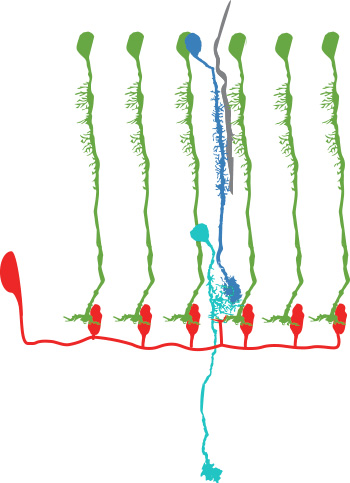
When light conditions change quickly, the eye has to react in a fraction of a second in order to continue to see well. This is helpful or even necessary when, for example, we are driving through a forest and steer out of the shade of trees into the sunlight and then back into the shade again. ‘In such situations, it is not enough for the photoreceptors in the eye to adapt; an additional correction mechanism is required,’ explains Prof Dr Marion Silies from the iDN. Her research group has already shown in previous studies that the fruit fly Drosophila melanogaster has a correction mechanism that starts directly behind the photoreceptors. Silies' team has now decoded the algorithms, mechanisms and neuronal circuits that make it possible to maintain stable vision in rapidly changing light conditions. The work was published in Nature Communications.
Edward Lemke named Fellow of the Biophysical Society
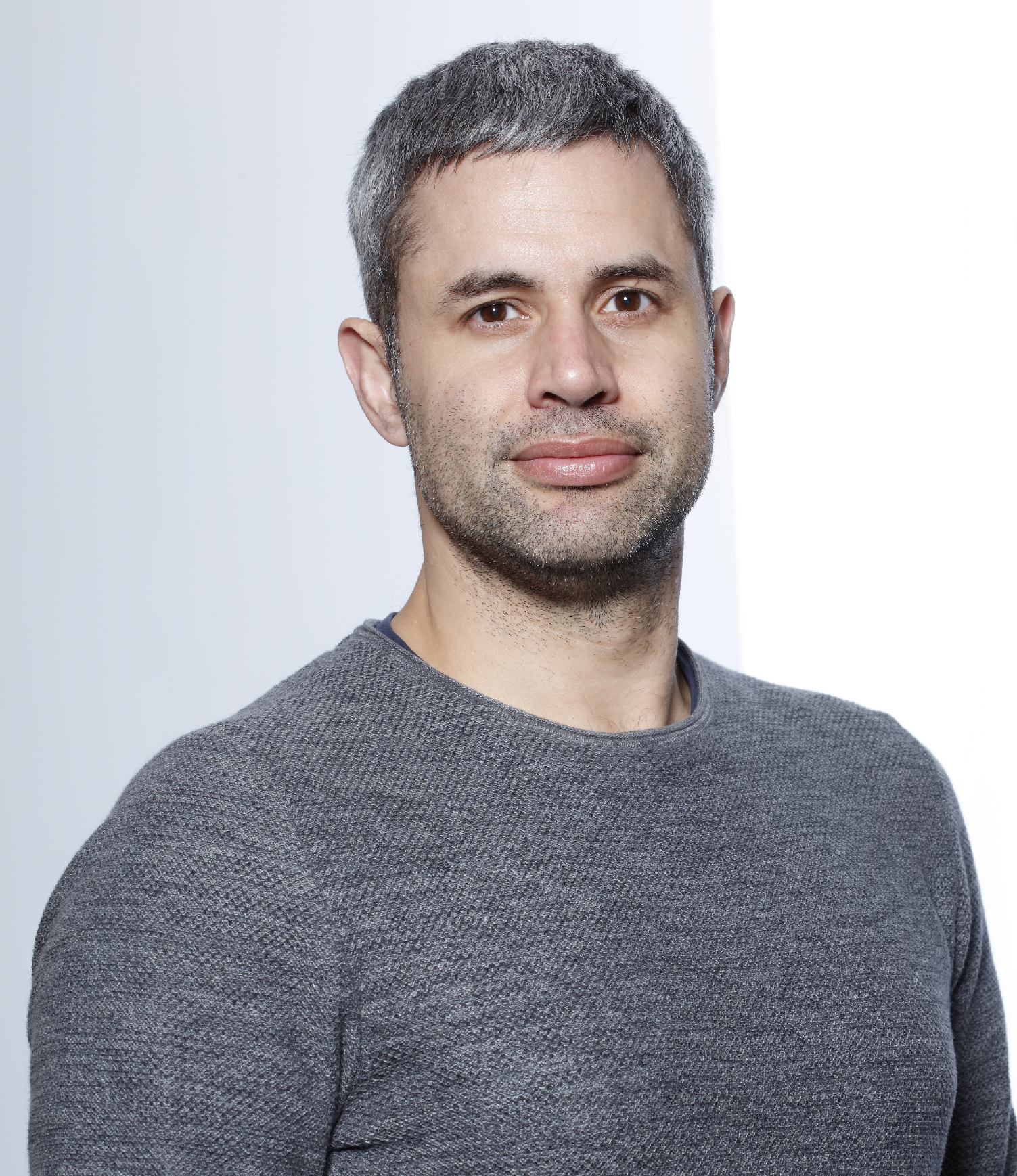
Prof. Dr Edward Lemke from the imP of the FB Bio has been named one of the Biophysical Society's Fellows 2025. The Biophysical Society, a scientific society based in the USA, has honoured a total of seven researchers as new Fellows. According to the Biophysical Society, this honours outstanding members of the society who have demonstrated their scientific excellence and contributed to the expansion of the field of biophysics. Edward Lemke receives the award for expanding the knowledge of the functional role of intrinsically disordered proteins.
25th Anniversary of 'Institut für Biotechnologie und Wirkstoff-Forschung'
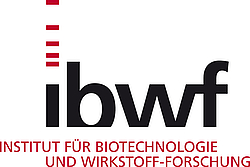
The IBWF is a non-university research institution of the state of Rhineland-Palatinate, which has been operating as a gGmbH owned by JGU since 2015. From 1998 to 2015, it had the legal form of a registered association and was based on the premises of TU Kaiserslautern until 2020. Since 2021, it has been housed in the BioCentre II in the immediate vicinity of the Department of Biology, where it was able to move into premises specially created for its needs. The IBWF conducts applied research and development in the field of biotechnology and searches for new chemical agents. The director of the IBWF is Prof. Dr Thines, who holds the professorship for biotechnology at the faculty and is the state coordinator for biotechnology.
Pro Retina-Stiftung supports AG Wolfrum's research into the rare Usher syndrome with donations totalling 25,000 euros
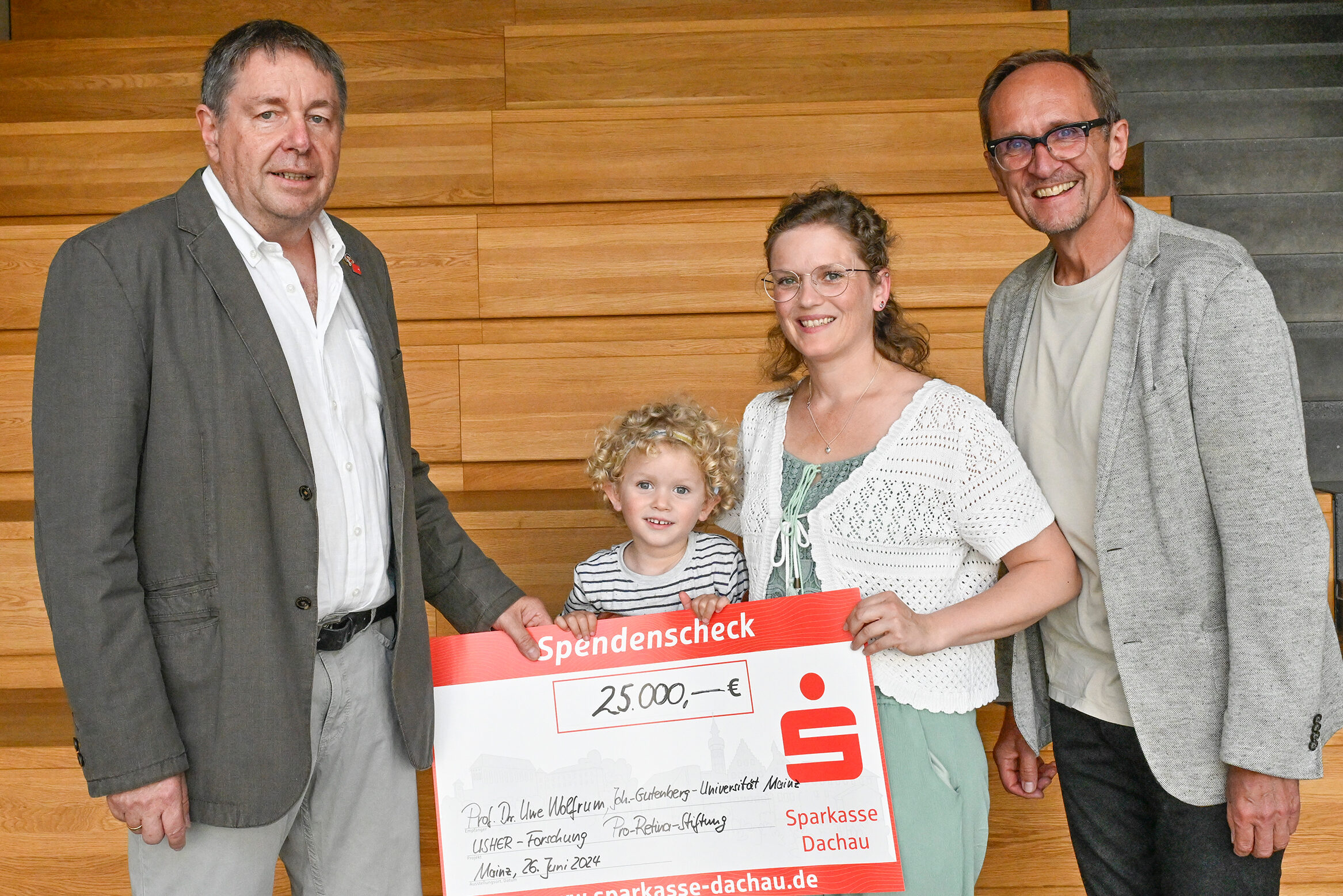
In Germany, around 8,000 people live with the very rare diagnosis of Usher syndrome. The hereditary and as yet incurable disease, named after the Scottish ophthalmologist Charles Howard Usher, is associated with both hearing impairment and retinal degeneration. Research has so far identified eleven genes whose defects can lead to one of the subtypes of Usher syndrome. In a large number of studies, Wolfrum's team has gained fundamental insights into the molecular processes and mechanisms of Usher syndrome and evaluated potential therapeutic options for the eye. And yet there is still a long way to go before sufferers like two-year-old Matti can be helped with innovative treatment options. Photo: Peter Pulkowski
Helle Ulrich receives ERC Advanced Grant for research on DNA repair and genome stability

Prof. Dr Helle Ulrich, Managing Director of the Institute of Molecular Biology (IMB) and Professor at the Department of Biology, has been awarded an ERC Advanced Grant. Her research on how a small regulatory protein called ubiquitin contributes to DNA repair and the maintenance of genome stability will be funded with 2.5 million euros over the next five years. ERC Advanced Grants are among the most competitive and prestigious awards given to experienced scientists in Europe.
Male or female? Sex determination in ants
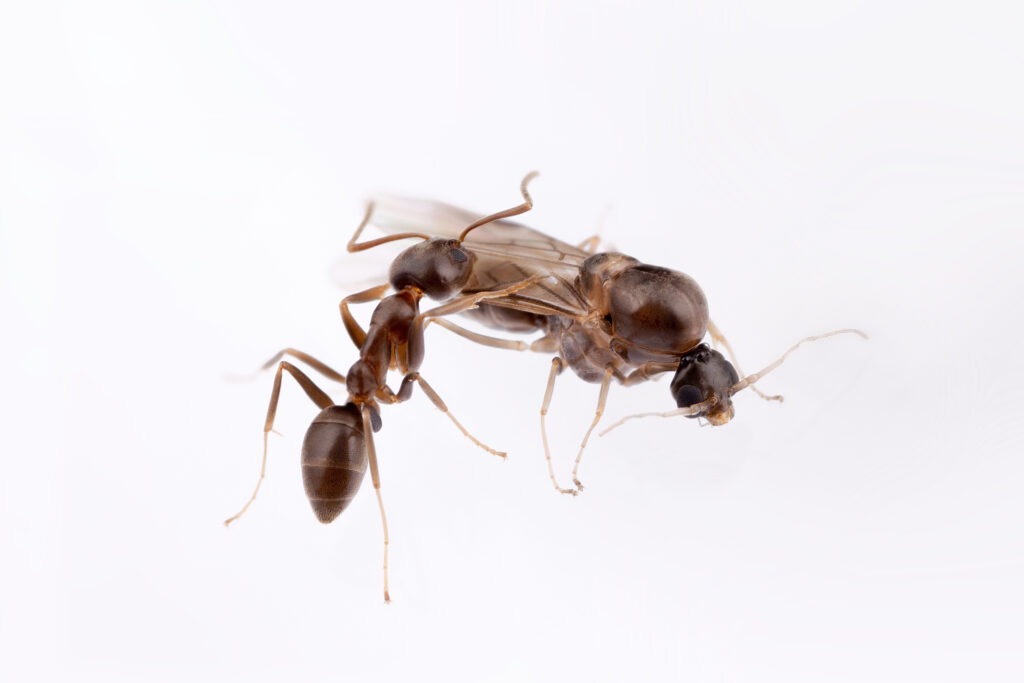
Researchers at the iomE of JGU and the University of Lausanne asked themselves, how it is determined in ants whether males or females hatch? In other words, what molecular mechanisms underlie sex determination in ants? After all, the majority of the ant population consists of female workers, but the few males are essential for the survival of the species. In order to track down these mechanisms, the researchers focussed on diploid males of the Argentine ant. In this species, sterile males can also be produced from fertilised eggs during inbreeding if the alleles of the sex-determining DNA segment are identical. The team, with the participation of Dr Huga Darras, published the results in the renowned journal Science Advances.
Foundation for Biological Drug Research at JGU established
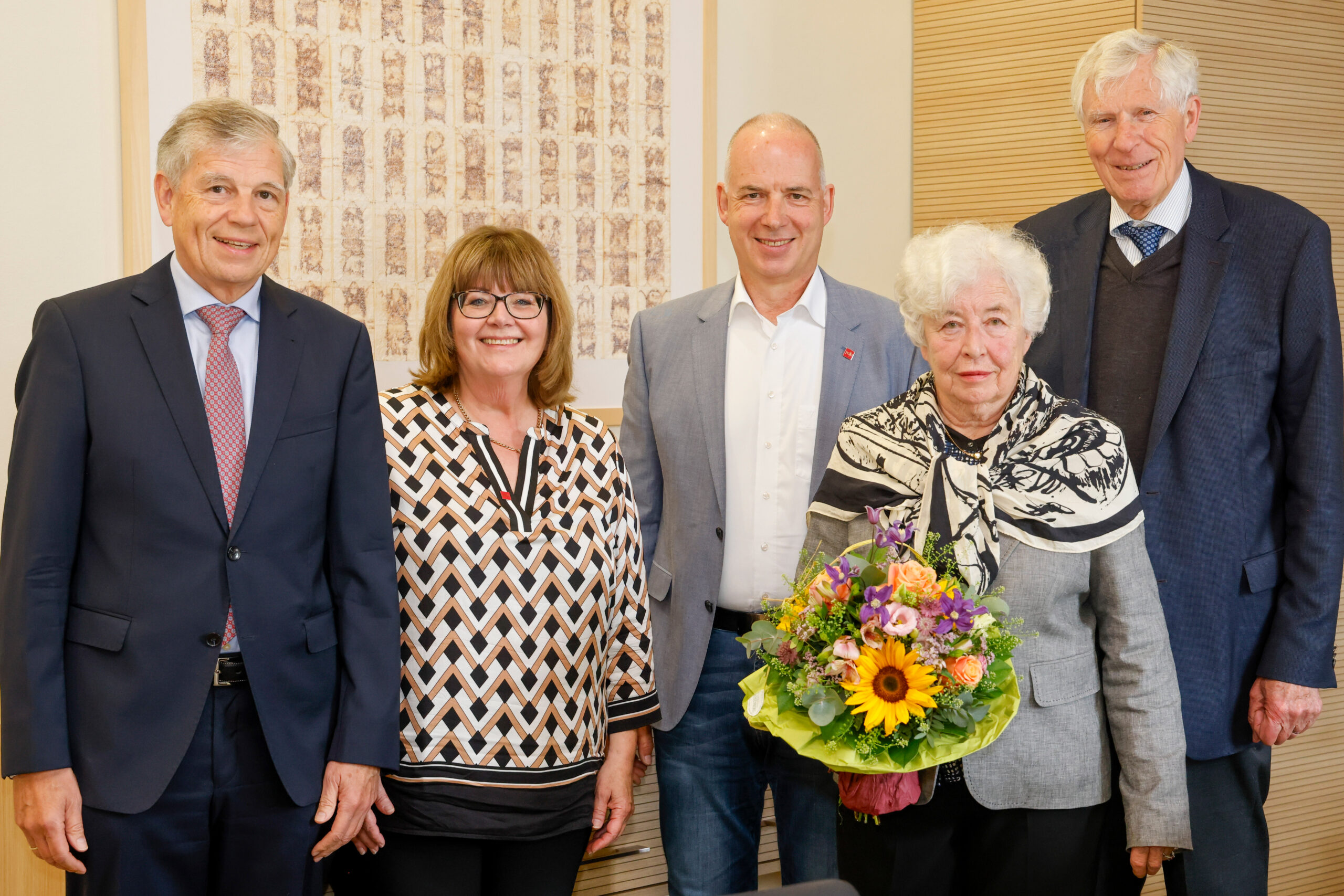
A new trust foundation has been established under the umbrella of the Johannes Gutenberg University Foundation: The founder couple Prof. Dr Heidrun Anke and Prof. Dr Timm Anke are using the new foundation to promote biological drug research and the associated research facilities at JGU. 'We are particularly pleased about this foundation, as it benefits an excellent profile focus of our university. Especially in conjunction with the research activities of the Institut für Biotechnologie und Wirkstoff-Forschung, JGU has a clear focus on forward-looking topics in biological and medical research and their innovative application,' explained JGU President Professor Georg Krausch. Photo: Stefan F. Sämmer
Women in the plant sciences - new path names in the Botanic Garden
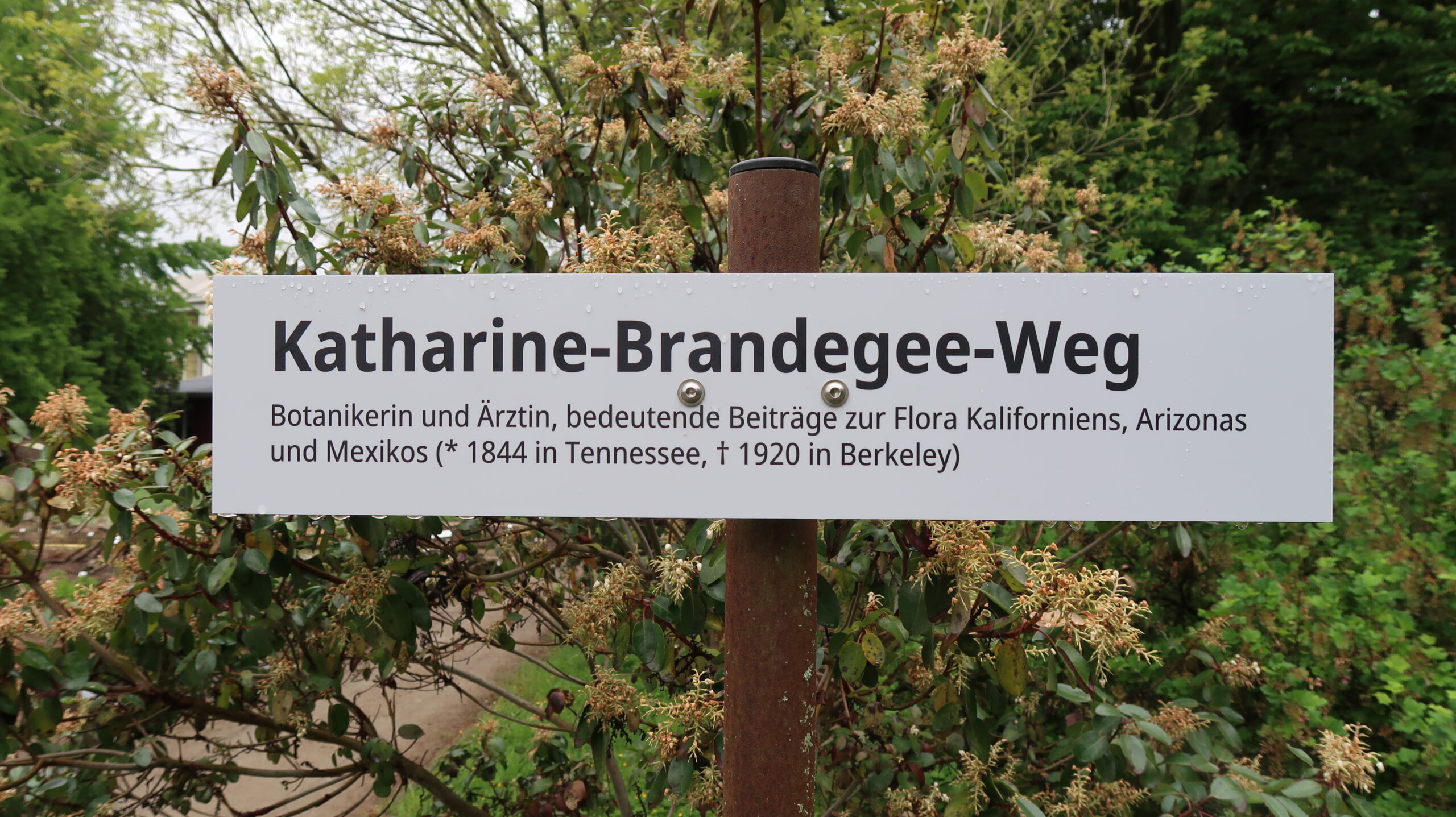
Since the 1950s, the paths in the FB10 Botanic Garden have been named after botanists. The majority of these path names go back to Wilhelm Troll, the founder of our Botanic Garden. The first selection included Carl von Linné and Johann Wolfgang von Goethe, both of whom played a decisive role in systematic botany. 'A total of 21 paths in the Botanic Garden are named after botanists. Female botanists have not been represented so far,' says Prof Meret Huber, Director of the Botanic Garden. 'This may not come as a surprise, as access to science was very difficult for women, at least until well into the 20th century. Nevertheless, women achieved excellent results in botany even back then. We would like to honour this by naming five paths in the Botanic Garden after outstanding female botanists.'
Not set in stone: Specialization of ant queens depends on the social environment
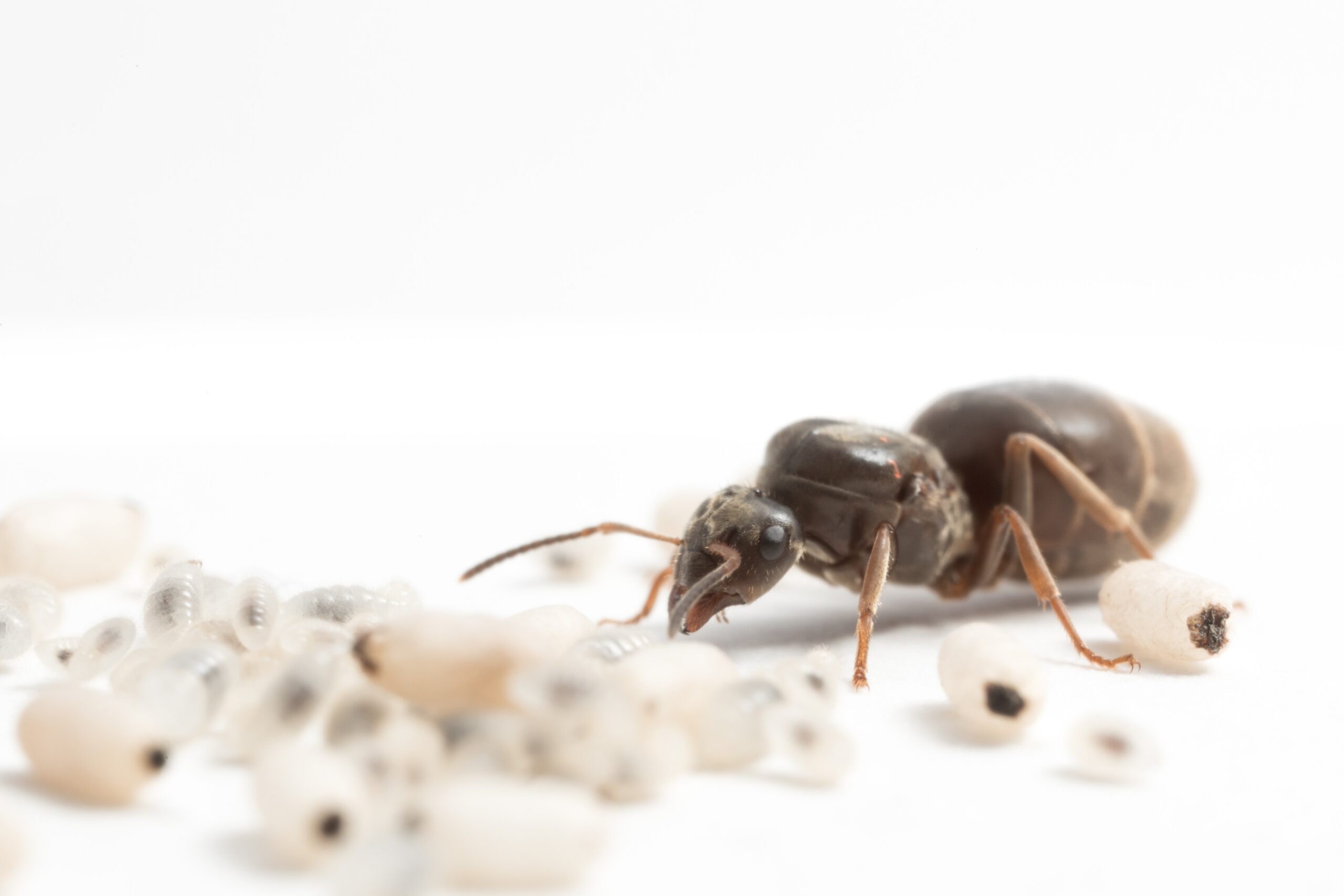
The queens of social insects, such as ants, bees or wasps, are generally regarded as the pinnacle of specialization in the animal kingdom. Queens, it is widely believed, are only there to lay eggs - and this trait is innate and not influenced by external factors. Contrary to this view, researchers at the iomE of the FB10 show that in ant colonies the social environment can play a decisive role in the behavioural specialization of ant queens. The work was carried out in Dr. Libbrecht's research group at JGU and published in Functional Ecology.
New international Master's degree course 'Evolutionary Biology' from winter semester 2024/2025
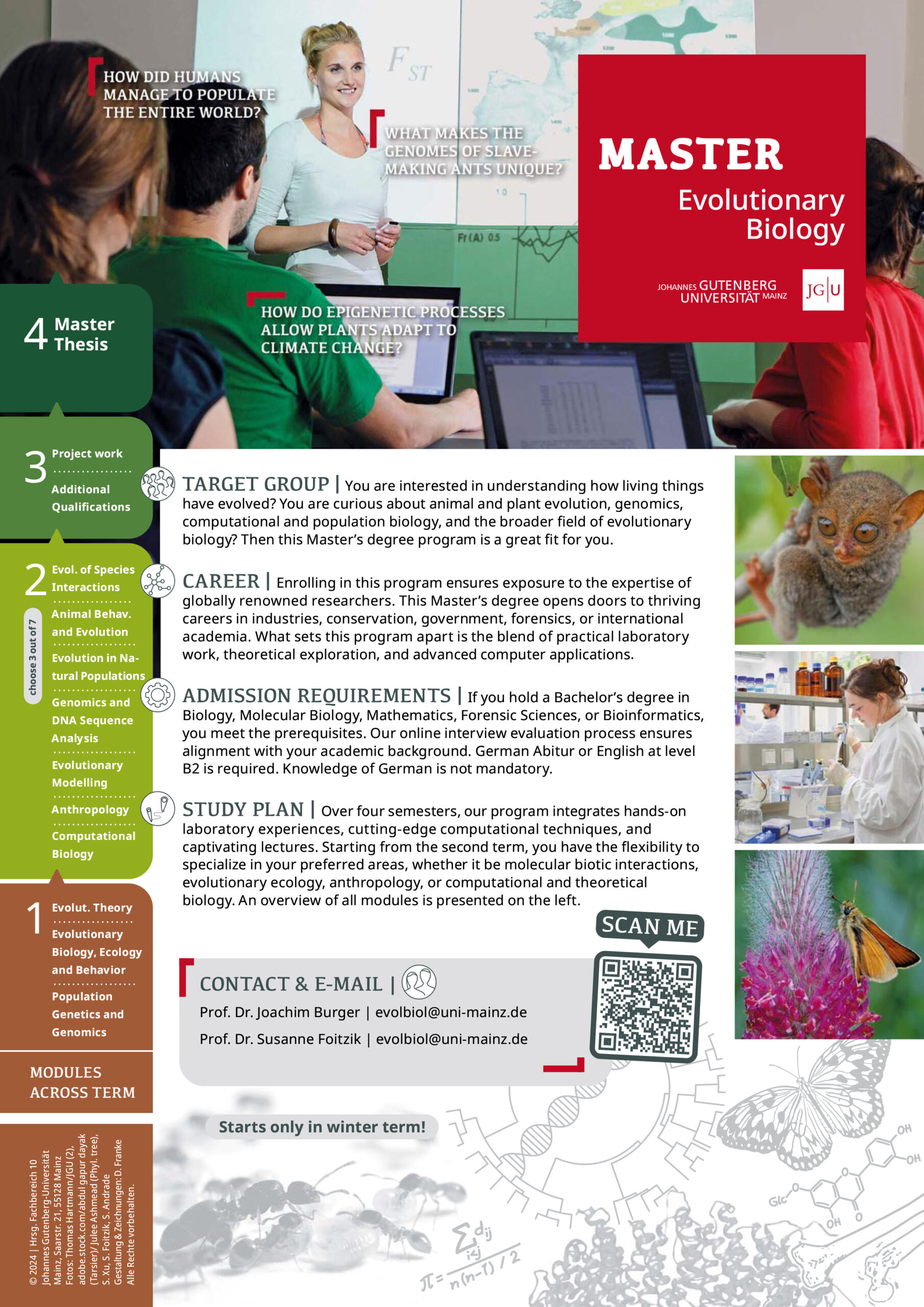
The Faculty of Biology is expanding its range of courses to include the international Master's degree course 'Evolutionary Biology' from winter semester 2024/2025. The English-language course offers students the opportunity to spend four semesters studying the evolution of animals and plants in detail in areas such as evolutionary ecology and population biology. From the second semester onwards, students specialize in areas such as anthropology, molecular biotic interactions, theoretical biology, genomics or computational biosciences. Applications are possible until May 15 each year.
New Center for Synthetic Genomics
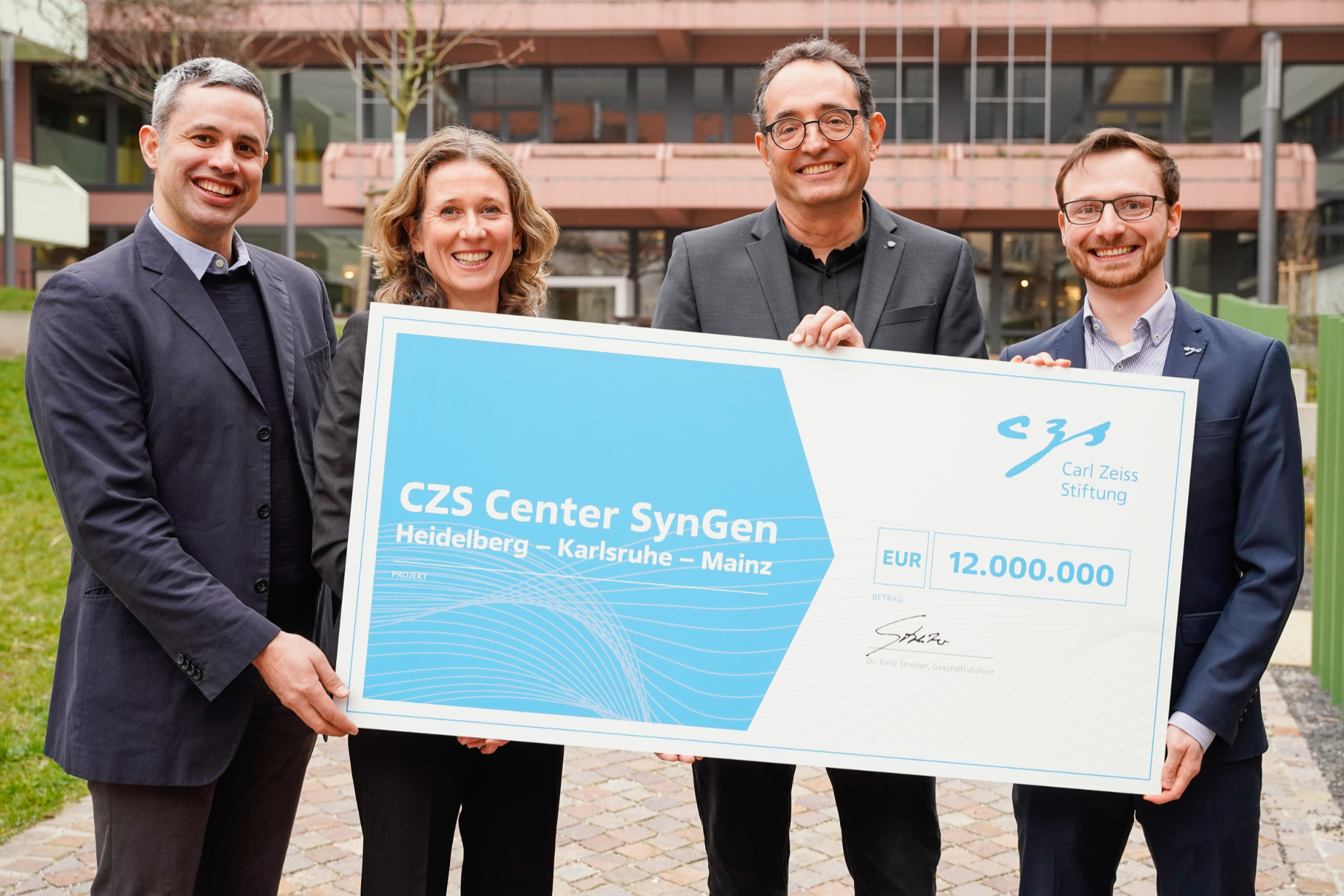
Advancing the application and development of new DNA synthesis technologies to pave the way for the production of entire artificial genomes - this is the goal of a new interdisciplinary center that is being established at Heidelberg University, the Karlsruhe Institute of Technology (KIT) and the FB10 of Johannes Gutenberg University Mainz (JGU). The Carl Zeiss Foundation (CZS) is funding the establishment of the Center for Synthetic Genomics with a total of twelve million euros over a period of six years. The aim is to initiate new developments in synthetic genomics through basic research and technology development using artificial intelligence methods.
'Bumblebees help! - Here and now!' Exhibition at the Mainzer Umweltladen
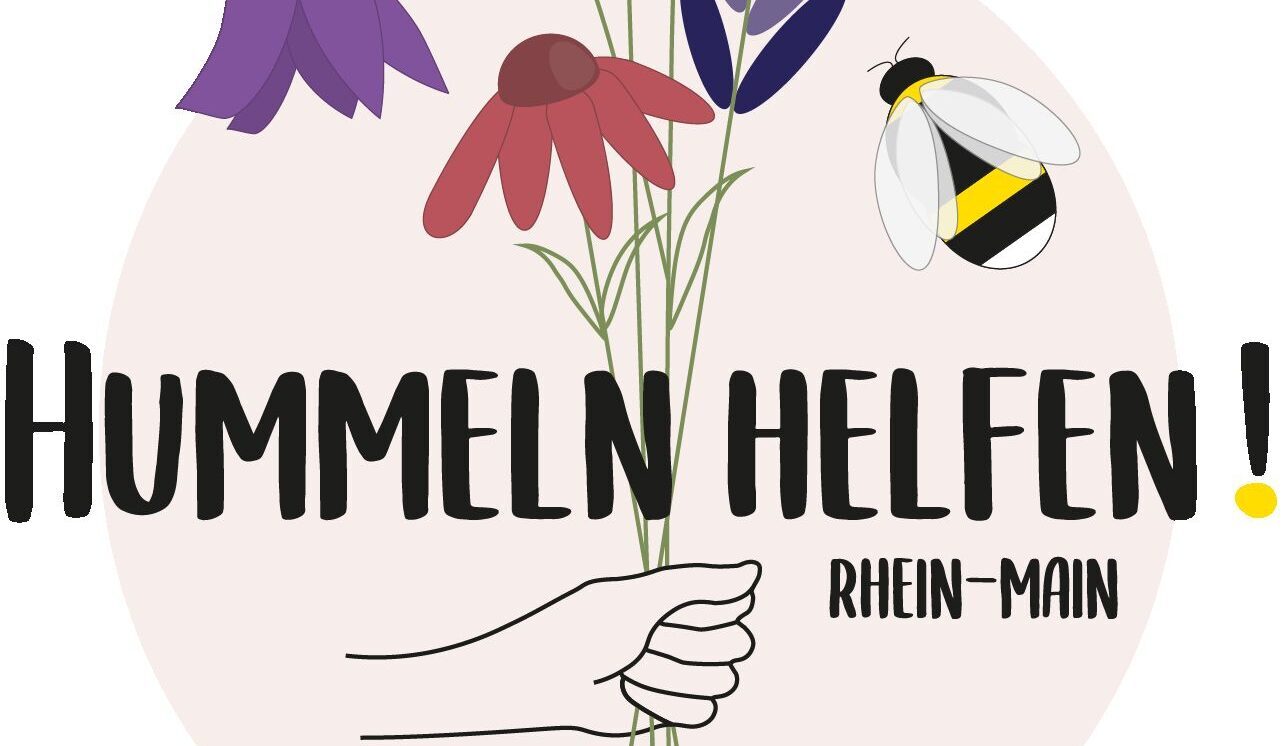
Bumblebees, well-known representatives of wild bees, are guests at the Mainzer Umweltladen from March 4 to May 3, 2024. The interactive exhibition features exhibits such as species profiles, photos, drawings and videos. The exhibits on display were created as part of the development and research project 'Hummeln helfen! Rhein-Main' development and research project of the AG Didaktik der Biologie. In this project, school classes are committed to the interests of bumblebees and other wild bee species. 'The new exhibition in the Umweltladen brings visitors young and old closer to the bumblebee and shows what each and every one of us can do to contribute to insect diversity,' said Janina Steinkrüger, Head of the Environment Department in Mainz, at the opening of the exhibition.
Nerve cells in the visual system of flies are surprisingly heterogeneously connected
The brain is a complex organ, not only in humans. Even in the brain of a fly, over 100,000 nerve cells are connected with several million synapses. Now, for the first time, an international consortium has fully reconstructed and published the nerve cells and their synaptic connections in the brain of a female fruit fly, scientifically named Drosophila melanogaster. With their work on the optic lobes, the part of the brain where visual information is processed, the research group of Prof. Dr. Marion Silies at the iDN made an important contribution to the overall result. The study has been published in Nature Communications.
Huge participation in the Day of the Faculty
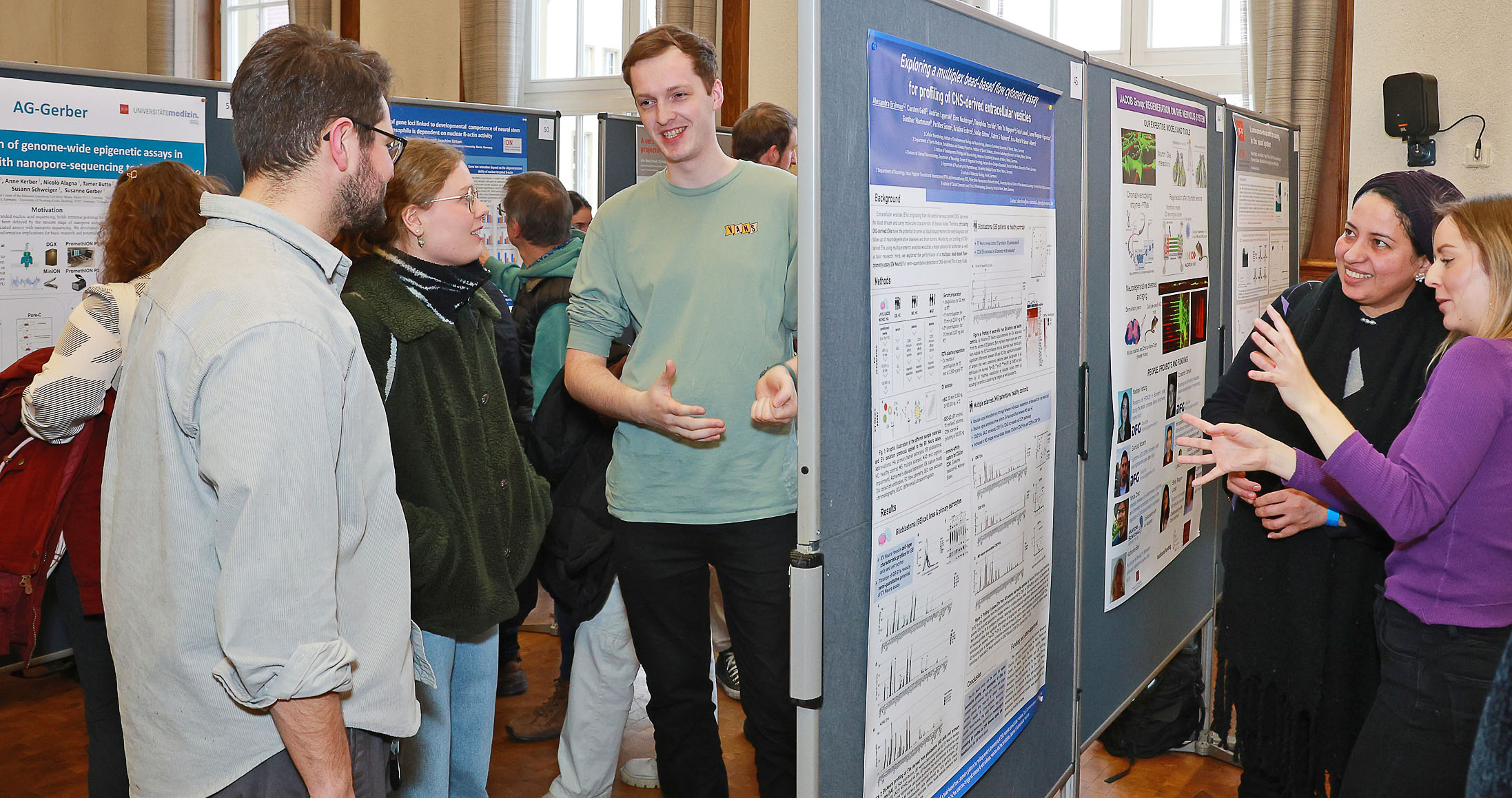
With over 250 people registered, the Faculty Day took place yesterday for the first time since 2018. The development and plans of the Faculty of Biology for the near future in the areas of study, research and construction were presented. New professors also introduced themselves and all areas of the Faculty were represented at a well-attended poster session. The day ended with an entertainment programme, live music and club vibes in the Kukaff. We would like to thank all those involved and supporting the event as well as the participants who made this great day possible! Photo: Bernd Eßling
Infinite embrace: New research reveals family ties in the Bronze Age
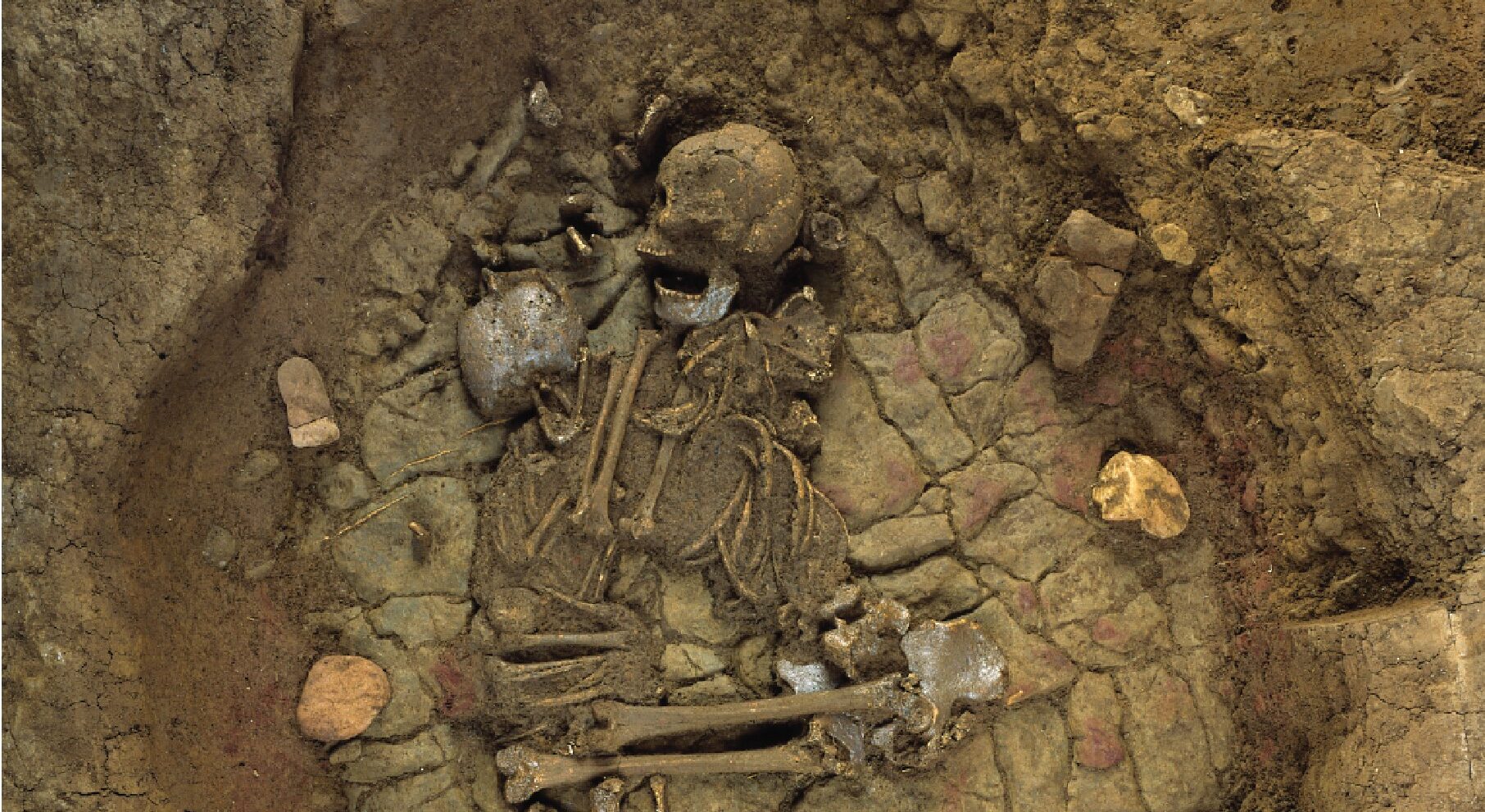
Prehistoric burials where adults have been buried with a child in an intimate embrace are a poignant sight and have long fascinated archaeologists. A new study of such burial finds from the Early Bronze Age in Luxembourg and Britain, conducted by researchers from Ag Burger at iomE and the University of Ferrara, provides insights into familial relationships in prehistoric communities and the transition from collective to individual burials in the 3rd millennium BC in Western Eurasia. The results provide the first genetic evidence that Bell Beaker communities in north-west Europe buried children together with their biological mothers and other close biological relatives. The study has been published in Scientific Reports.
EU funding for visionary glioma therapy project
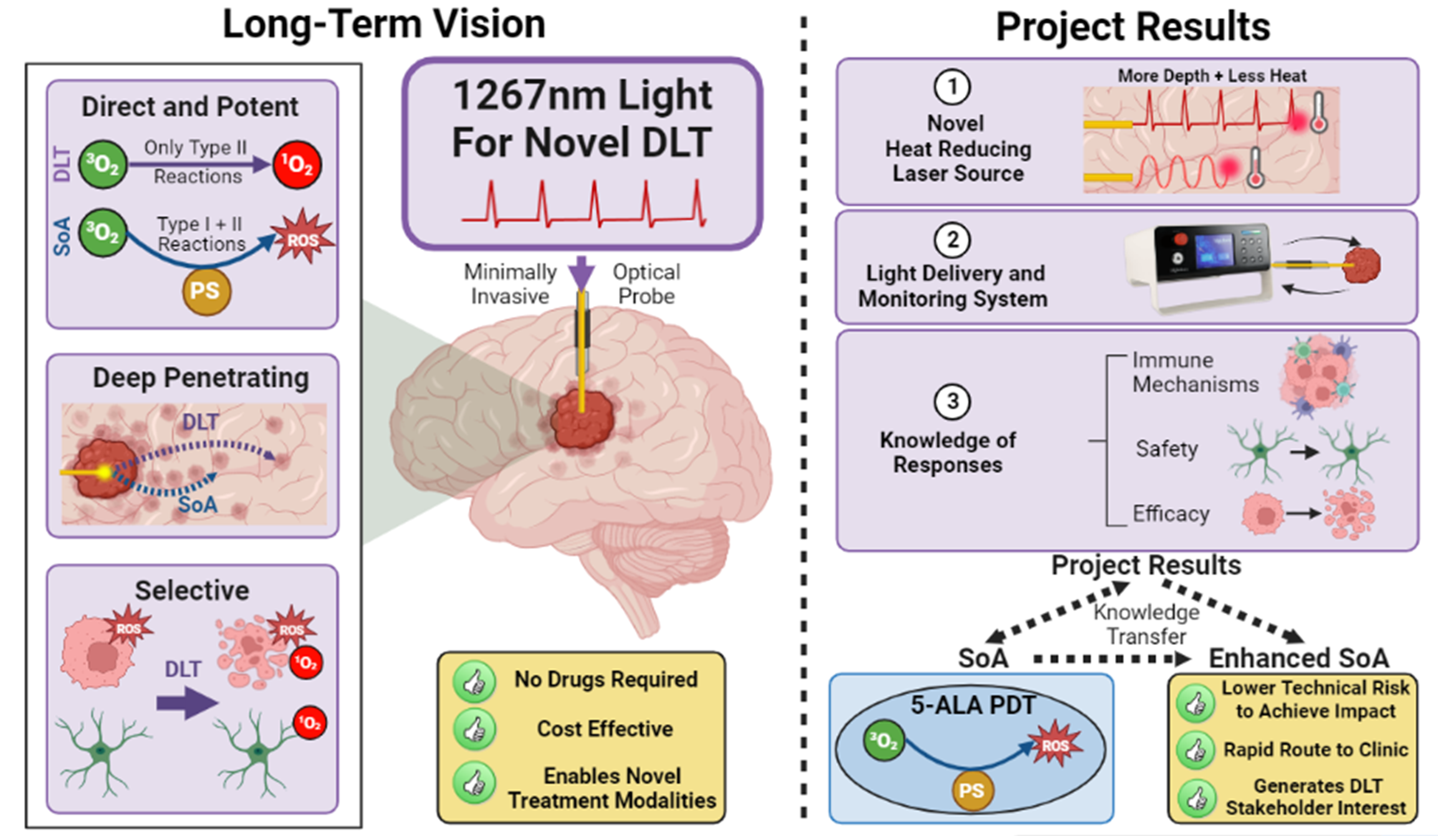
Gliomas are among the most common brain tumours and are difficult to treat as they are diffuse and often located deep in the brain. An EU project is now investigating a promising, innovative method of treating gliomas and preparing it for clinical use. The coordinator of the project is Dr Anne Régnier-Vigouroux from the iDN. Other European academic partners are also involved, as well as a British non-profit research funding consultancy. In the Pathfinder programme, the EU supports particularly innovative, high-risk technologies in the earliest phase of their development. The partners will receive around 2.2 million euros for their GlioLighT project over the next three years.
Dorothee Dormann receives ERC Consolidator Grant for research into neurodegenerative diseases

The protein TDP-43 is omnipresent in our body cells and is important for the biochemical processes in the cells. However, it becomes problematic when these proteins accumulate into large clumps and become lodged in the brain, as this causes degenerative diseases such as Alzheimer's and other dementias. Prof. Dr. Dorothee Dormann (imP) suspects that the proteins also have a tendency to aggregate in the healthy body and that this is important for the function of the TDP-43 proteins. The ERC Consolidator Grant is one of the EU's most highly endowed funding measures for individual scientists and has a funding period of five years.
Shuqing Xu receives ERC Consolidator Grant for research into the evolution of ecological communities under climate change

Every species interacts with other species in the ecosystem and these species interactions can change as a result of climate change. For example, a plant could grow faster due to increased temperatures - but if the number of its predators also increases, it could suffer greater damage and ultimately even spread less. Prof. Dr. Shuqing Xu (iomE) wants to investigate these relationships. The ERC Consolidator Grant is one of the EU's most highly endowed funding measures for individual scientists and has a funding period of five years.
New mechanism for the degradation of aldehyde-induced RNA-protein cross-links
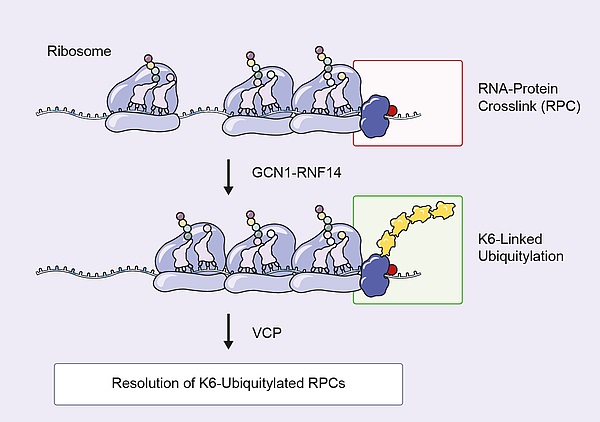
Reactive aldehydes pose a risk to human health in the environment, at work and during leisure time. They are also continuously produced in the human body through normal cell metabolism and are also formed as by-products of alcohol degradation. The Beli working group (iDN and IMB) was able to show that aldehydes not only damage double-stranded DNA, but also cause single-stranded RNA and proteins to chemically crosslink. This cross-linking blocks the ribosomes in their attempt to translate RNAs into proteins. The studies were published in Molecular Cell.
Natural substances from Ayurveda help against depression in fruit flies

Chronic stress also leads to a depression-like state in flies, which manifests itself in a lack of motivation: the animals court less, they show less willingness to stop for sweets and food, and in experiments they are less willing to cross gaps. Studies by AG Strauß (iDN) and its cooperation partner in Oregon show that two plants from Ayurveda produce a resistance to chronic stress when ingested prophylactically, so that the stressed flies did not develop depression. The studies were published in the journal Nutrients.
Second funding phase of the Research Training Group GenEvo approved by the DFG"

With a combination of evolutionary biology and molecular biology in doctoral training, the FB10 and the IMB have achieved convincing results over the past four and a half years. 'This is a fantastic success based on the results of the last few years. And we want to continue this success story with our doctoral students in the second funding period,' says Prof. Dr. Susanne Foitzik, spokesperson for GenEvo. The second funding period of the RTG begins at the beginning of January 2024 and runs until the end of June 2028, with a total of around 7 million euros in funding.
How marine bristle worms use a special protein to distinguish between sunlight and moonlight

The marine bristle worm Platynereis dumerilii uses a special cryptochrome protein called L-Cry to distinguish between sunlight and moonlight. This ability is crucial for the worms to synchronize their reproduction with the phase of the moon using an internal lunar calendar. Structural analyses and the biochemical investigations carried out primarily in Mainz revealed that L-Cry assumes a so-called dimeric arrangement with two stably linked subunits in the dark, but can be separated into its subunits by intense, sunlight-like exposure. The work was carried out by AG Wolf (imP) in cooperation with a working group at the University of Cologne and published in Nature Communications.
New roles for electrical synapses in the neural network controlling flight force in insects

A team of researchers from AG Duch at iDN and Theoretical Biology at Humboldt-Universität zu Berlin has been able to solve a decades-old puzzle about the emergence of electrical activity patterns during insect flight. 'In the fruit fly Drosophila melanogaster, wing movement is controlled by a miniaturized circuit consisting of only a few nerve cells and synapses,' explains Prof. Carsten Duch. And probably not only in the fruit fly: the more than 600,000 insect species that rely on similar locomotion are also likely to have such a neural circuit. The publication appeared in Nature.
Hanna Kokko receives Alexander von Humboldt Professorship

Prof. Sabine Döring, State Secretary at the Federal Ministry of Education and Research, and Prof. Robert Schlögl, President of the Humboldt Foundation, presented her with one of Germany's most highly endowed research awards in Berlin. Theoretical scientists receive 3.5 million euros for the first five years, which they can use, for example, to build up their research team or for technical and special equipment. When nominated, the universities submit a concept of how they will finance the professorship beyond this period. Prof. Georg Krausch, President of JGU, says: With Hanna Kokko, we have succeeded for the second time within a few years in strengthening the Faculty of Biology by attracting a renowned Humboldt Professorship. Her expertise and global visibility support JGU's life science research in a cutting-edge field that will be central to our competitiveness in the years to come.
DFG approves new research training group in the field of chromosome biology at the Faculty of Biology
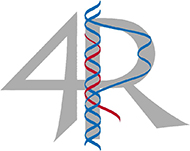
The Research Training Group R-loop Regulation in Robustness and Resilience (4R) will focus on specific RNA-DNA hybrids that can have both positive and negative effects on the cell. Within the framework of 4R, twelve PhD students will work in this field from fall 2023 in the RTG, which was applied for in close collaboration with the IMB. It is an absolutely innovative field of research in which groundbreaking findings have been made over the past five years. We are pleased to be able to continue our intensive research here with the Research Training Group, says Prof. Brian Luke, the spokesperson for the new Research Training Group and a professor at the iDN. The DFG is supporting the project with around 8.3 million euros over the first five years.
How wiggly spaghetti guard the genome
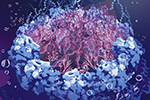
Tiny pores in the cell nucleus play an essential role for healthy aging by protecting and preserving the genetic material. A team from the Department of Theoretical Biophysics at the MPI of Biophysics in Frankfurt am Main and the Lemke group at imP has literally filled a hole in the understanding of the structure and function of these nuclear pores. The scientists found out how intrinsically disordered proteins in the center of the pore can form a spaghetti-like mobile barrier that is permeable for important cellular factors but blocks viruses or other pathogens. The results were published in Nature.
That is why there are fewer and fewer insects

Worldwide, there are not only fewer and fewer insects, but also fewer and fewer insect species. The main reasons for this are increasingly intensive land use, for example through agriculture or building development, as well as climate change and the spread of invasive species by humans. Dr. Florian Menzel (iomE), together with Prof. Dr. Martin Gossner and Dr. Nadja Simons, initiated a special issue of Bology Letters on insect mortality. The result is the now published special issue with twelve research and two opinion articles as well as a detailed editorial.
Male yellow crazy ants are real-life chimeras

It is considered one of the worst invasive species in the world: the yellow spider ant, or Anoplolepis gracilipes. Scientists are much more interested in the insect's reproduction, and the males in particular have puzzled scientists until now. Dr. Hugo Darras explains that previous genetic studies on yellow spinner ants have shown that males of this species carry two copies of each chromosome. This was unexpected, since males typically develop from unfertilized eggs and carry only one maternal set of chromosomes - in ants as well as bees and wasps. Darras is an assistant researcher in the Foitzik group at iomE and first author of the study recently published in Science.
Some cancer cells may not be as immortal as previously thought

Scientists at the iDN and the IMB may have discovered new insights into how cancer cells regulate the ends of their chromosomes, called telomeres. Certain cancers use a specific type of telomere regulation called ALT, which was thought to allow them to become immortal. Professor Brian Luke and his group found that ALT cells may actually undergo senescence, which could mean that they are vulnerable to drugs designed to kill senescent cells. This finding could open the way for new therapies to slow or stop ALT cancer cells from growing.
DFG approves CRC 1551 at FB10: Polymer Concepts for Understanding Cellular Functions
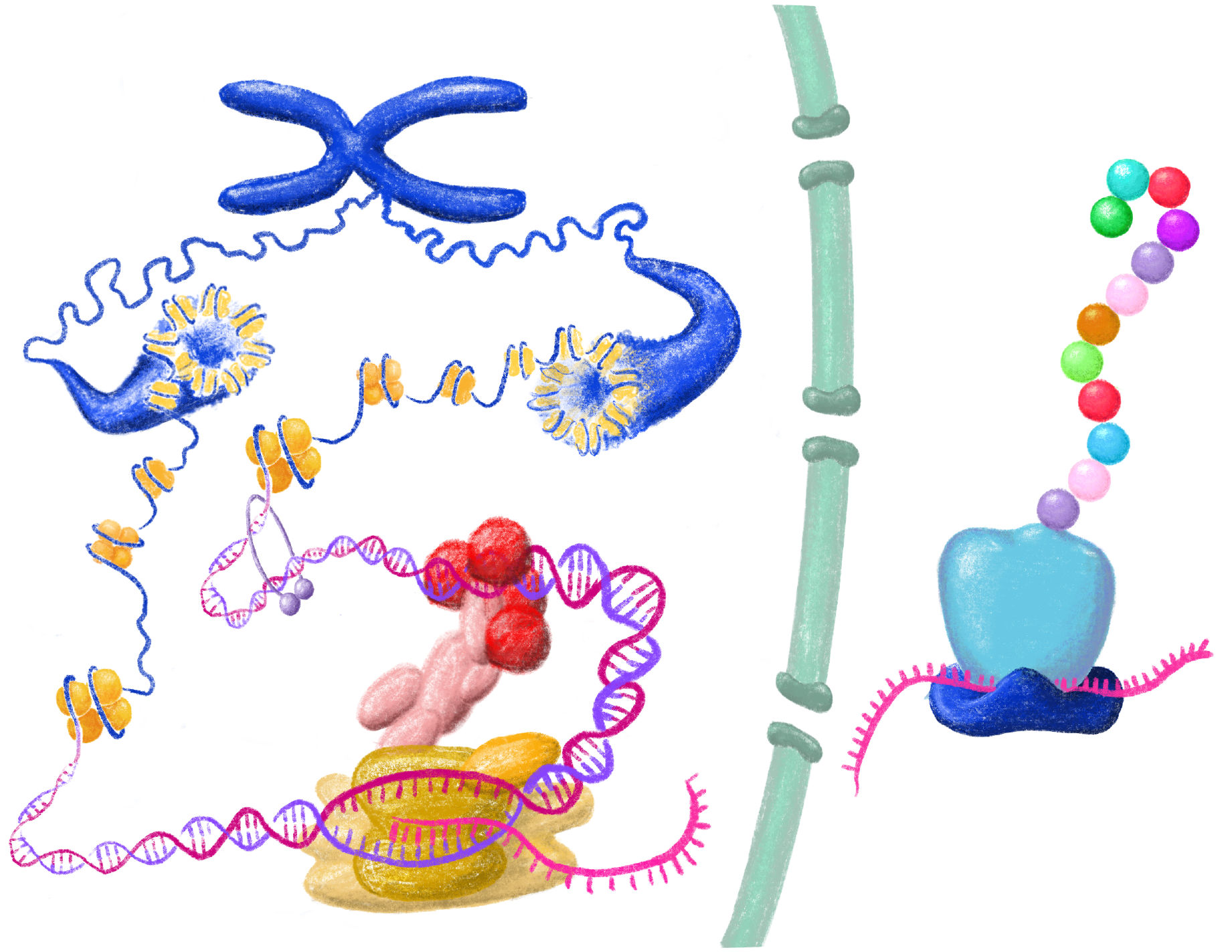
The SFB 1551 will start in January 2023 at FB10 with participation of the IMB, the Max Planck Institute for Polymer Research, the Max Planck Institute for Biophysics and the University of Stuttgart. In particular, the participating individuals will investigate the polymeric construction of DNA, RNA and proteins and analyze the influence of the polymeric properties of these biomolecules on their functions in the cell. The DFG is providing around 9.5 million euros for this over the first four years. The spokespersons are Edward Lemke and Dorothee Dormann from the Institute of Molecular Physiology.
DFG extends CRC 1361: Regulation of DNA Repair and Genome Stability

The SFB 1361 has been funded at FB10 since 2019. In addition to JGU, IMB, TU-Darmstadt, LMU and GU FFM are also involved in SFB 1361. In its research, the SFB aims to explore the mechanisms by which cells protect their genetic information. Given the multitude of diseases that arise from deficiencies in genome maintenance, including cancer and accelerated aging, a better understanding of DNA repair is critical for human health. In its second four-year funding period, the SFB will receive approximately 10.6 million euros to deepen its mechanistic analyses of DNA repair systems and intensify its efforts to establish functional links between individual repair pathways to integrate them into larger regulatory networks. The spokesperson is Prof. Ulrich, professor at FB10 and director at IMB.
Inspired by nature: Silencing bacteria

Bacteria love moist surfaces. Once they have settled there, they do not live as solitary organisms, but form larger communities that are surrounded by a protective film. These biofilms are found on various surfaces, for example on light switches, in the bathroom, on toys etc. Current research approaches are therefore trying to prevent bacterial colonization of material surfaces or at least to make it more difficult. A team consisting of AG Tremel (FB09, Dep. Chemistry) and AG Heermann (FB10, imP) together with the Federal Institute of Hydrology in Koblenz has now developed a new coating for materials using cerium dioxide nanoparticles preventing bacterial colonization.
Pathway to brown colouration of diatoms deciphered

Diatoms are tiny unicellular organisms that occur in waters worldwide and absorb large amounts of the greenhouse gas carbon dioxide through photosynthesis and convert it into biomass. The uptake of the blue-green portion of sunlight takes place via the carotenoid fucoxanthin. An international research team with the participation of a working group from the Johannes Gutenberg University Mainz (JGU) has now discovered how the algae produce this important, widespread pigment. The work was published in the renowned journal Proceedings of the National Academy of Sciences (PNAS).
Understanding depression better
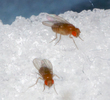
At first glance, humans and fruit flies don't have much in common. Yet fruitflies can reveal a lot about people, for example when it comes to depression. Scientists of the Strauß research group at iDN are working on understanding and thus treating depressive states. One of the goals is to identify natural agents that have effects on depression in Drosophila. In addition, the group has found that rewards after busy days can prevent depression in Drosophila. They are currently searching for factors in the genome that trigger better resilience to stress. The findings were published in Current Biology.
Famine and pathogens have driven spread of lactose tolerance in Europe
In a study, scientists from the University of Bristol, University College London (UCL) and FB10, together with colleagues from 20 other countries, refute some long-held assumptions about why humans developed the ability to digest the milk sugar lactose as adults. The new research suggests the following as the origin of lactose intolerance: famine and exposure to pathogens best explain the development of lactose tolerance. Details on this thesis can be found in the publication in Nature....
European university network FORTHEM to receive 14.4 million euros in funding from the European Commission for another four years
The now nine partner universities of the European higher education alliance FORTHEM will continue to receive funding from the European Commission within the framework of Erasmus+ - with around 14.4 million euros for the coming four-year period, probably starting November 1, 2022. In the past three years, the FORTHEM alliance has already successfully established cooperation structures. Another central task in the new funding period will be to identify further thematic areas in which the FORTHEM universities can bring impulses from teaching and research into dialogue with the perspective of society - for example, in the FORTHEM Labs on key contemporary issues such as climate change, migration and digitization. Faculty 10 has been involved from the outset with offerings and will continue to expand this....
Edward Lemke now member of EMBO
Prof. Lemke has been elected as a member of the European Molecular Biology Organization (EMBO). Lemke is a biophysical chemist and professor of synthetic biophysics at the Institute of Molecular Physiology at JGU. EMBO is a prestigious international organization of life scientists whose members are selected by the EMBO Council. Its main goals are to support talented researchers at all stages of their careers, to stimulate the exchange of scientific information, and to help build a European research environment in which scientists can perform at their best. Lemke is one of the leading experts in the field of intrinsically disordered protein research. At the European Molecular Biology Laboratory (EMBL) in Heidelberg, he led an Emmy Noether group and in 2015 he won an ERC Consolidator Grant. He joined JGU in 2018 and received an ERC Advanced Grant in 2022....
Photorhabdus luminescens – a true all-rounder: Insect pathogenic bacterium also helps to combat fungal infestation
Future food shortages are expected to become exacerbated in many parts of the world. With this in view, sustainable biological techniques are being explored that could increase the yield of cereals and other food crops and which, unlike the use of chemical pesticides, are environmentally compatible. The bacterium Photorhabdus luminescens is already used as bioinsecticide to protect crops against a wide range of insect pests. Researchers at imP of FB10 have recently demonstrated that P. luminescens can also protect plants against fungal infection. A secondary cell form of the bacterium is responsible for this additional effect. This variant first colonizes the fungal mycelium and then destroys it by degrading chitin, a major component of the cell wall of fungi. The results of this research could be very significant in future, particularly with regard to cereal production. Prof. Heermann says that he sees this as a prime opportunity to make farming more environmentally friendly and sustainable with the help of these bacteria....
Approval of an Alexander von Humboldt Professorship at the Faculty of Biology
After being nominated by the Faculty of Biology, theoretical evolutionary biologist Prof. Dr. Hanna Kokko has been selected for Germany's most highly endowed research prize. Kokko is a world leader in her field and currently works as a professor at the University of Zurich. She is to be based in FB10 at iomE and will be the founding director of a virtual institute for quantitative and computational biosciences, helping to develop it into an international centre for theoretical biology. Photo: Bibiana Rojas...
Genetic origin of the world's first farmers clarified
The genetic origin of the first Neolithic arable farmers long seemed to lie in the Middle East. A new study published in the journal Cell shows that the first farmers were in fact a mixture of Ice Age hunter-gatherer groups that ranged across the Middle East to southeastern Europe. The study involved researchers from the iomE at FB10 as well as from the Swiss universities of Bern and Fribourg. The method they developed could help to uncover further processes of human evolution with a previously unattained resolution....
Seed Bank for Wild Plants Rhineland-Palatinate opened in the Botanical Garden of FB10
In the seed bank for wild plants, seeds of rare and endangered plant species can be stored in a germinable state for decades. The project developed from the participation of the Botanic Garden and the Green School in a Germany-wide collaborative project to protect endangered wild plants. The seed bank enables new research and educational projects at the Botanic Garden and offers additional options for botanical species conservation in Rhineland-Palatinate. With the completion of an extension to the existing seed cleaning building, financed by the state of Rhineland-Palatinate, all the conditions are now in place for the long-term storage of seeds. The Department would like to thank the Custodian of the Botanic Garden, Dr Ralf Omlor and the Head of the Green School, Dr Ute Becker for their efforts in completing the project....
New Master's programs: Neuroscience and Microbiology
The new Master's programs will start in the winter term 2022/2023, and the other Master's programs Molecular Biotechnology, Biology, Anthropology and Education Biology can also be applied for. Applications are possible until May 15, 2022 and for the international Master's program Microbiology (double degree with the University of Dijon, France) until May 31, 2022. Details on the applications can be found on our websites for the individual degree programs....
Prof. Shuqing Xu appointed Professor of Evolutionary Plant Sciences
Shuqing Xu took up the professorship at the Institute of Organismic and Molecular Evolution (iomE) on April 1, 2022. In his previous professorship at the University of Münster, he was able to establish a new plant system, the giant duckweed, in order to be able to study plant evolution in real time. These experimental evolutionary approaches allow the analysis of adaptations to current - man-made - environmental changes. The targeted development of this model system allows the processing of evolutionary biology questions and in-depth molecular analyses and thus ideally combines research topics of the Faculty of Biology at JGU....
Students have little knowledge of biodiversity in bees
For some time now, there has been undoubted scientific evidence for the ongoing insect mortality in Germany and many other regions of the world. The loss of many species, especially among bees, will have far-reaching consequences for the pollination of our plants and the stability of ecosystems. This makes it all the more important to raise awareness of the complex relationships and diversity of pollinators. However, as a new study by the Didactics of Biology working group shows, pupils are hardly able to correctly assess the importance of wild bees and to distinguish between different bee species. The project Bumblebees help! Rhein-Main is intended to provide pupils with knowledge about wild bees and is funded by the Federal Agency for Nature Conservation (BfN) with 345,000 euros over three years....
Marion Silies receives ERC Consolidator Grant for the study of adaptive processes of vision
Due to the rapid processing of visual information, we can move around the world relatively easily. Other living beings or modern devices based on computer-aided vision must also process the information from their environment quickly and precisely, even if the external conditions change abruptly. Prof. Dr. Marion Silies from the Institute of Developmental Biology and Neurobiology (iDN) investigates how different visual systems react to specific environmental conditions and adapt to their own behavior in the fruit fly Drosophila melanogaster and other insects. For the AdaptiveVision project, it is now receiving funding of two million euros from the European Research Council (ERC). The Faculty of Biology congratulates on this great success....
Researchers find link between excessive R-loop levels and DNA damage to be a potential cause of disease
There are many different ways in which the genetic material DNA can be damaged, resulting in the development of diseases such as cancer. Certain forms of DNA damage are associated with so-called R-loops. These are three-stranded structures consisting of two DNA strands and one RNA strand, whereby one of the DNA strands forms the loop. The level of R-loops needs to be strictly regulated to avoid genomic instability and consequent damage. Researchers at the iDN/IMB have developed a new method that has allowed them to identify the proteins in the proximity of R-loops in human cells. They discovered that a tumor suppressor protein called DDX41 is responsible for preventing R-loops from building up in cells and that this is an important mechanism for preventing genomic instability and subsequent disease. The results were published in Nature Communications....
Dorothee Dormann and Rosa Rademakers collaborate in a research project on rare forms of dementia
The Dormann group at the imP will collaborate with Antwerp geneticist Professor Rosa Rademakers in a research project on less-common forms of dementia. Rosa Rademakers is head of the VIB Center for Molecular Neurology at Antwerp University in Belgium and was awarded the Generet Award for Rare Diseases from the King Baudouin Foundation, worth EUR 1 million, on Tuesday. Dorothee Dormann is part of Professor Rademakers' research network and will receive EUR 200,000 over the next four years for research work to be undertaken at Johannes Gutenberg University Mainz (JGU)....
Local motion detectors in the fruit fly perceive complex patterns generated by their own motion
Even walking or driving requires an attentive eye so that the movement in the room succeeds without any problems. The eye of flies has to do even more to react appropriately in flight. The fruit fly Drosophila melanogaster therefore needs a quick perception and transmission of the information from the eye to the nervous system in order to adapt its behavior to the respective situation. Scientists from the Silies group at the iDN have now gained new insights into how the eye of Drosophila specifically processes movement information generated by the fly's own movement in space. They discovered that direction-selective cells can distinguish six types of global movement patterns....
How fish-saurians rapidly evolved into giants of the ancient ocean
EIchthyosaurs and whales are classic examples of convergent evolution and secondary recolonization of the sea after a mass extinction event. In a study published in Science, Eva Maria Griebeler from iomE, together with an international team of researchers, presents new findings on the size evolution of ichthyosaurs and whales. The body size and modelling documented for ichthyosaurs on the evolution of the body size of ichthyosaurs and whales show that ichthyosaurs have already reached the size of a modern sperm whale only about three million years after their conquest of the sea, while the whales took about 45 million years to do so. This is all the more surprising since it had previously been assumed that the low primary production of the Triassic limited the size evolution in ichthyosaurs....
Dorothee Dormann from imP receives Alzheimer's Research Award 2021 from the Hans and Ilse Breuer Foundation
This year, the renowned Scientific Advisory Board (SAB) nominated Prof. Dr. Dorothee Dormann for the renowned Alzheimer's Research Award of the Hans and Ilse Breuer Foundation. The Foundation's Board of Trustees has followed the recommendation of the SAB and has decided to award the Alzheimer's Research Award 2021 to Dorothee Dormann. Born in Schorndorf in 1976, the scientist is Professor of Molecular Cell Biology at the imP of FB10. For the Alzheimer's Research Award 2021, the Foundation was able to raise third-party funds that will benefit the award winner's institute in the amount of 280,000 euros for her research project....
Three types of slave-holding ants lose the same olfactory receptors
Together with a team from the Universities of Münster, Frankfurt and Regensburg, the Foitzik group at iomE presents new research results on genome evolution in parasitic ants. The workers of slave-keeping ants do not feed the brood of their queens themselves and do not go in search of food. Rather, these activities are taken over by the innkeepers, i.e. ants of a different species. Interestingly, this behavior evolved several times independently, starting from social ancestors, and is therefore an example of so-called convergent evolution. The researchers argue that this transition to a parasitic way of life is closely linked to the loss of genes for receptor molecules that are important for finding food or brood care. The results were published in Molecular Biology and Evolution....
Faculty of Biology receives 150,000 euros in state funding for a biotechnology guest laboratory
At JGU, a new biotechnology guest laboratory is being established at the Faculty of Biology. To this end, Minister of Science Clemens Hoch has handed over a corresponding funding decision to the Dean of the Department of Biology, Eckhard Thines. The state grant will be used to equip a guest laboratory and thus contribute to strengthening Mainz as a biotechnology location and to international networking in the future field of biotechnology. The investments are being implemented at JGU as part of the FORTHEM initiative and were raised by Prof. Thines....
1.6 million euros to strengthen Mainz as a biotechnology location - proportionate funding for the expansion of the Light Microscopy Core Facility (LMCF) at FB10
JGU has received a state grant for the implementation of its Integrated Core Facility Concept (IRIC). The aim is to set up and expand central research infrastructures, so-called core facilities, in order to strengthen Rhineland-Palatinate as a biotechnology location. Core Facilities provide researchers with uncomplicated access to equipment and techniques available at the university. Minister of Science Clemens Hoch handed over the funding in the amount of 1.6 million euros to the President of Johannes Gutenberg University Mainz, Prof. Dr. Georg Krausch. In FB10, the LMCF is being expanded with a proportionate grant under the direction of Dr. Bastian Hülsmann....
Bardet-Biedl syndrome proteins modulate the release of bioactive extracellular vesicles
Primary cilia are microtubule based sensory organelles important for receiving and processing cellular signals. Recent studies have shown that cilia also release extracellular vesicles (EVs). EVs have been shown to exert various physiological functions, these findings have the potential to alter our understanding of how primary cilia regulate specific signalling pathways. The group May-Siemra at the imP shows that ciliary mutant mammalian cells demonstrate increased secretion of small EVs (smEVs) and a change in EV composition. The results have been published in Nature Communications....
The advantage of genetic diversity: More diverse ant colonies raise more offspring
Ant colonies with a higher degree of genetic diversity thrive better than those that consist of individuals with more similar genetic backgrounds. This is the conclusion of an experimental study of the Libbrecht group at iomE in which researchers compared various colonies of the common black ant with one another. The results of this study may explain why unusual phenomena, such as queens that are fertilized more than once and colonies with several queens simultaneously, could have evolved in some insect societies. This occurs not only in ants but also among many different species of eusocial insects....
Edward Lemke receives funding from the Volkswagen Foundation for his work on the replication of cellular processes using new forms of organelles
As part of its Life? project, the Volkswagen Foundation is funding a research project that is placing membraneless organelles within cells in the spotlight as a way of understanding the fundamental processes that are essential to life. Professor Edward Lemke will be receiving roughly EUR 1 million in financing over the next five years to support his work in this field. Together with his research team, Lemke recently demonstrated that it is possible to design a membraneless organelle that can assume completely new functions within a cell. The biophysical chemist is Professor of Synthetic Biophysics at the Institute for Molecular Physiology and Adjunct Director at the IMB....
Meeting space for biodiversity education: Diversity garden of the Green School opened
Joint gardening and experiencing biological diversity: As part of a cooperation project with the Landeszentrale für Umweltaufklärung Rheinland-Pfalz (LZU), a Diversity Garden in the Botanical Garden of FB10 is being created, which complements the educational offer of the Green School as a meeting place for biodiversity education. This diversity garden is intended to bring together young people who want to work for the preservation of biodiversity. The cost of the new garden amounts to 30,000 euros. The construction and creation of the Diversity Garden was made possible by donations from the Mainz Science Foundation and the Friends of the Botanical Garden....
Engineering new cell functionalities on thin films
In 2019, Professor Edward Lemke and his research team succeeded in creating an artificial membraneless organelle that translated the RNA code using a new code, or language, without interfering with RNA translation in the rest of the cell. Now, Lemke and Dr. Christopher Reinkemeier, have further built on this success by creating film-like organelles that can be used to subdivide cell processes into even smaller spaces. The biggest gain is that we were able to create extremely small reaction spaces.This way we can have several of them in a cell at the same time, explained Lemke, Professor of Synthetic Biophysics at the imP. This novel method not only allows scientists to engineer proteins with unique functions, but also helps them to better understand how eukaryotic cell functions evolve. Results have been published in Cell....
Mechanisms to separately regulate synaptic vesicle release and recycling
Chemical synapses transmit information within the nervous system. When a presynaptic cell is electrically excited, synaptic vesicles fuse with the presynaptic membrane causing messenger substances within the vesicles to be released into the synaptic cleft. These then bind to receptors in the postsynaptic cell where they trigger an electrical signal once again. The temporal and spatial sequence of the incoming signals determines how information is processed and transmitted in the brain.the groups of Prof. Duch and Prof. Heine at the iDN and others have revealed in a PNAS paper how spatiotemporally separated presynaptic calcium signals independently regulate exocytosis and endocytosis of synaptic vesicles, i.e., their release and recycling....
Environmentally friendly behaviour of school children can be promoted
Environmentally friendly behaviour of school children can be promoted" text="Many insects, including numerous wild bee species, are threatened with extinction. A good starting point to make young people aware of this problem and to show possibilities for action is to treat the topic in school lessons. According to the results of a new study, school children are much more environmentally friendly in their intentions to act after having taken care of a bumblebee colony for three to five weeks. However, this clear correlation can only be established immediately after the experiment and not of longer-term duration....
Remarkable new insights into the pathology of Usher syndrome
Human Usher syndrome (USH) is the most common form of hereditary deaf-blindness. Sufferers can be deaf from birth, suffer from balance disorders, and eventually lose their eyesight as the disease progresses. In cooperation with the Lührmann group at the MPI for Biophysical Chemistry, the Wolfrum group at the imP has discovered that the Usher syndrome 1G protein SANS plays a decisive role in the regulation of the splicing process. Furthermore, the researchers have been able to demonstrate that defects in the SANS protein can lead to errors in the splicing of genes related to the Usher syndrome, which may provoke the disease. The results were published in Nucleic Acids Research....
Parasites as fountains of youth: Study finds infected ants live much longer
Ant workers that are infected with a tapeworm live much longer than their uninfected nest-mates. Parasitic infections are usually harmful to their hosts, but there are some exceptions. According to the results of a multi-year scientific study, ants of the species Temnothorax nylanderi show exceptionally high survival rates when infected with a tapeworm. The lifespan of the infected ants is significantly prolonged. Such workers have a survival rate similar to that of queens. Queens of this species can live for up to 20 years, while female workers rarely reach the age of two. Among possible explanations for this extended lifespan are the change in the physiology of infected ants caused by the parasites and the fact that infected workers are better supplied with food. The results have been published in Royal Socienty Open Science....
Inhibition of the meprin β enzyme linked to the development of Alzheimer's disease analyzed
Meprin-ß is an essential metalloenzyme in intercellular signal transmission. As a proteolytic sheddase, Meprin-ß removes proteins from the cell surface, thereby releasing them and thereby controlling their functions in the organism.A malfunction of these processes can lead to neurodegenerative diseases such as Alzheimer's dementia, fibrosis, cancer and inflammatory kidney disease, as target proteins of the meprin anchored on the cell surface are involved. The study of the AG Stöcker from the iMP was published in PNAS....
Mainz variant of the Corona virus is not permanent
Tracking the spread of SARS coronavirus 2 mutants is currently of the greatest epidemiological and medical interest. First work of the recently established SARS-Cov-2 sequencing consortium Mainz with the participation of university medicine (virology, human genetics, test center), the department of biology (AG Molecular Genetics and Genome Analysis) and the company StarSEQ GmbH based on the campus show that virus variants with questionable mutations have not only originated a few times locally in other countries, but that a special Mainz variant was already present in the university medicine in December 2020. The variant has been contained by efficient hygiene measures and has not been proven since. However, the data show that regular screening of virus isolates through genome sequencing is necessary in order to detect any dangers occurring in good time....
From sipping spiders and animal top models
50 teachers at the Johannes Gutenberg University Mainz (JGU) have produced a video series on the nature of the year 2020. The result is 16 short films, which are intended to make students curious about the diversity of biology. The contents range from bees and flowers to sophisticated hunters. Teachers can integrate the free material directly into their lessons. The video series The Nature of the Year 2020 – Facts & Fun Facts was created as part of a module on the Master of Education Biology course. Prof. Dr. Daniel Dreesmann, Head of the Didactics of Biology Working Group at the Institute of Organismic and Molecular Evolutionary Biology at JGU, offered the seminar and is more than satisfied with the result....
One bacterium – two life forms: Secondary variant of Photorhabdus luminescens interacts with plant roots
The group of Prof. Dr. Ralf Heermann at the imP has discovered a new form of life of the photorhabdus luminescens bacterium that was previously unknown. This form goes straight to the roots of the plants. There it presumably promotes plant growth primarily by releasing substances against fungi that are harmful to plants. His group first analyzed the transcriptome, i.e. the entirety of the genes read, using molecular biological methods and compared the two forms of life. The new form therefore differs in many factors: It is more flexible and sensitive, reacts to plant exudates and swims in their direction. So everything indicates that this form of bacteria interacts more intensively with the plants....
Lactose tolerance spread throughout Europe in only a few thousand years
The human ability to digest milk even after infancy has spread in Central Europe in just a few thousand years. This is shown by the results of an international research team headed by the Palaeogenetics working group at iomE. As they report in Current Biology, they had the genetic material in human. Examined bones dating from approx. Were killed in a battle. Only around one in eight had a gene variant that enabled them to break down lactose and thus digest milk....
Mechanisms for rebuilding the myelin sheath after injury or in multiple sclerosis deciphered
The team of neurobiologist Prof. Dr. Claire Jacob uncovered an important mechanism that regulates the restoration of the myelin sheath after injury from trauma or degenerative disease. Based on these findings, damaged myelin sheaths in mice were regenerated by treatment with the active ingredient theophylline, thus restoring the function of the nerve cells. The groundbreaking findings are based on research carried out at the iDN and the Swiss Université de Friborg....
Large molecules need more helpers for their transport through the nuclear pore into the cell nucleus
A new study from the field of biophysics shows how large molecules manage to penetrate the nucleus of a cell. Scientists working with Prof. Dr. Edward Lemke at the iMP thus provide important insights into how viruses, for example, get into a cell nucleus where they can continue to multiply. They also show that the effectiveness of the transport decreases with the size of the molecules and how corresponding signals on the surface can compensate for this....
Calcium channel subunits play an important role in autistic disorders

The capacity of our brain to process and store information depends largely on the connections between nerve cells. Chemical synapses play an important role here, as they form the most important interface for the transmission of information between individual nerve cells. Disturbances in the formation of synapses are the cause of many neurological diseases such as autism. Neurobiologists from the Heine group at the IDN Mainz have found new evidence that specific calcium channel subunits are significantly involved in the development of excitatory and inhibitory synapses....
Versatile symbionts: reed beetles benefit from bacterial helpers at all stages of life
Scientists at the iomE of FB10, in collaboration with researchers from the MPI for Chemical Ecology and cooperation partners in Hamburg and Japan, have the symbiotic bacteria 's contribution to the unusual lifestyle and diet of the Reed beetle examined. Prof. Dr. Martin Kaltenpoth explains that the reed beetles can open up new niches thanks to the symbiosis bacteria. So symbionts expand the ecological potential of their host, but what's even more exciting is that they can also limit their adaptability ...
Master's Program Molecular Biotechnology from winter term at Faculty of Biology
A new English Master's programme has been established at the Faculty of Biology for the winter term 2020/2021 in cooperation with Faculty 09. Further information about the programme, such as the course of study and the preliminary module manual, can be found on our website for the Master Program (click on more >> below) and our flyer, which is available for download there. At the same time, the Bachelor's degree programme Molecular Biotechnology will be established at Faculty 09 for the winter semester 2020/2021, in which the Faculty of Biology is involved....
Peter Baumann elected as new EMBO member
Peter Baumann joined the IDN of FB10 at Johannes Gutenberg University Mainz (JGU) in 2018 with a Humboldt Professorship. He is a leading researcher in the field of chromosome biology and focuses on, for example, the protection and repair of chromosome tails by the enzyme telomerase to the effects of hybridization and changes in the number of chromosome sets in the course of evolution....
First step to induce self-repair in the central nervous system
Damaged peripheral nerves can regenerate after an injury. Axons are affected in the case of injury and need to regrow to recover their function. The Research team of Prof. Jacob at the IDN of FB10 and at the University of Fribourg investigated the details of this repair process and have demonstrated that the same mechanism could be activated in cells of the central nervous system....
Minisymposium CRISPR in aller Munde: Perspektiven für Landwirtschaft und Umweltschutz?
 Die Fachschaft Biologie der JGU Mainz veranstaltete in Zusammenarbeit mit Prof. Hankeln und Prof. Dreesmann am 7. Juni 2019 ein Symposium mit dem Titel „CRISPR in aller Munde: Perspektiven für Landwirtschaft und Umweltschutz?“. Den etwa 150 interessierten TeilnehmerInnen wurden in einer Vortragsreihe zunächst die wichtigsten Aspekte in der Diskussion um Grüne Gentechnik und der neuen Genschere CRISPR/Cas erläutert. Eingeladen waren fachkundige ReferentInnen aus Forschung, Politik, Rechts- und Kommunikationswissenschaften und Wirtschaft....
Die Fachschaft Biologie der JGU Mainz veranstaltete in Zusammenarbeit mit Prof. Hankeln und Prof. Dreesmann am 7. Juni 2019 ein Symposium mit dem Titel „CRISPR in aller Munde: Perspektiven für Landwirtschaft und Umweltschutz?“. Den etwa 150 interessierten TeilnehmerInnen wurden in einer Vortragsreihe zunächst die wichtigsten Aspekte in der Diskussion um Grüne Gentechnik und der neuen Genschere CRISPR/Cas erläutert. Eingeladen waren fachkundige ReferentInnen aus Forschung, Politik, Rechts- und Kommunikationswissenschaften und Wirtschaft....
Durch die BLUME: Projekt zur Blütenbiologie und Artenvielfalt im Schulunterricht erweitert
Kenntnisse über Blütenbiologie und ein Verständnis für die Vielfalt in der Natur vermitteln – dies ist das Hauptanliegen des Forschungs- und Entwicklungsprojektes Durch die BLUME der AG Didaktik der Biologie an der Johannes Gutenberg-Universität Mainz (JGU). Die Gruppe um Dr. Lisa Kissi und Prof. Dr. Daniel Dreesmann hat dazu im vergangenen Jahr erstmals eine groß angelegte Versandaktion gestartet, bei der mehr als 400 Materialkisten mit Saatgutmischungen und dazugehörendem Begleitmaterial an alle weiterführenden Schulen in Rheinland-Pfalz verschickt wurden....
13.06.2019
An antifungal defense: Beewolves sterilize their brood cell with nitric oxide
Microbial spoilage of stored food is not only a problem for humans. Beewolves, who store large provisions of paralyzed honey bees for their larvae, are also endangered by mold fungi. In the recent eLife publication Dr. Engl and colleagues from Mainz and Regensburg found an extraordinary defense mechanisms: eggs of this digger wasp release high concentrations of the radical gas nitric oxide that downright sterilize the entire brood cell shortly after oviposition....
17.05.2019
Topping-out Ceremony of BioCenter II
The four story tall building on the campus of JGU will be adjacent to BioCenter I. From autumn 2020 the BioCenter II will provide space for around 300 people working in the Institute of Molecular Physiology, the Biochemistry (FB09) and the Institut für Biotechnologie und Wirkstoff-Forschung (IBWF gGmbH)....
13.05.2019
The Research Training Group Genregulation in Evolution (GenEvo) will be established by the DFG at the Faculty of Biology
The DFG will provide around 5 Million Euro to establish the research and training program of GenEvo at the Faculty of Biology over the next few years. The goal of GenEvo is to gain a better understanding of the Evolution of complex gene regulatory Systems. Within GenEvo the Faculty of Biology collaborates with the IMB. Therefore, Prof. Foitzik (FB10) as well as Prof. Ketting (IMB) will be the speakers of GenEvo. ...
29.03.2019
Designer organelles in cells produce synthetic proteins
A research team led by Prof. Lemke from the Institute of Molecular Physiology has engineered a designer organelle in a living mammalian cell in a new complex biological translation process. The created membraneless organelle can build proteins from natural and synthetic amino acids carrying new functionalities. ...
20.02.2019
Arms race between ant societies: Gene activity in defenders depends on invading slavemaking ants
T. americanus is a slavemaking ant found in northeastern America. These tiny social insects neither rear their offspring nor search for food themselves. Instead, they raid nests of another ant species, Temnothorax longispinosus, kidnap their larvae and pupae to bring these back to their own nest. Biologists of the Foitzik group examined the special relationship between the parasites and their host and made an exciting discovery....
14.02.2019
Honeybees' waggle dance no longer useful in some cultivated landscapes
For bees and other social insects, being able to exchange information is vital for the success of their colony. One way honeybees do this is through their waggle dance, which is a unique pattern of behavior, which probably evolved more than 20 million years ago. A bee's waggle dance tells its sisters in the colony where to find a high-quality source of food. Results of Dr. Grüter from the Foitzik Group have been published in Science Advances....
24.01.2019
Further Funding for Research Project ISIBELa
Successful project in the field of cancer therapy is prolongued for a second round. The Project is headed by the University Medical Center Mainz. From FB10 Research group Hankeln is taking part. Congratulations!...
11.12.2018
ERC Consolidator Grant for Martin Kaltenpoth
he SYMBeetle project will investigate the symbiont supported biosynthesis of the cuticula as a key mechanism which potenially has supported the evolutionary success of beetles....
26.11.2018
CRC 1361 will be established by the DFG at the Faculty of Biology
The new collaborative research center focussing on DNA repair and genome stabilty will bring together scientists from JGU, IMB, TU Darmstadt, LMU Munich and Goethe University. The speaker is Prof. Ulrich who is professor at FB10 and director at IMB. ...
18.10.2018
How plants bind their green pigment chlorophyll
Whenever you see green color out in nature, you are likely to look at chlorophyll. This is the pigment used by all plants to do photosynthesis. There are two versions, chlorophyll a and chlorophyll b. These are structurally very similar to one... ...
18.10.2018
How beetle larvae thrive on carrion
Burying beetles rely on their gut symbionts in order to transform decaying carcasses into nutritious nurseries for their young. ...
15.10.2018
Professorship in Functional Neruobiology
Prof. Heine will start his research and teaching at JGU in the winter term. His research focusses on the plasticity of synapses and neuronal networks using electrophysiological methods....
08.10.2018
Professorship in Cellular Neurobiology
Prof. Jacob will start her research and teaching at JGU in the winter term. Her research focusses on the maintenance and regeneration of the nervous system by chromatin remodelling. ...
28.09.2018
Professorship in Microbiology
Prof. Heermann will start his research and teaching at JGU in the winter term. His research team works on the molecular principles of the regulation of the interplay between symbiosis and pathogenicity of bacteria. ...
26.09.2018
Professorship in Molecular Plant Sciences
Prof. Wachter will start his research and teaching at JGU in the winter term. His research focusses on the molecular mechanisms of alternative splicing in plants which for example has implications for the gene regulation. ...
27.09.2018
IRP Schellenberg Research Prize for Prof. Jacob
The IRP foundation awards the proze every second year for extraordinary researchers in the field of paraplegia. Prof. Jacob received the award for her work on Schwann cells in the peripheral nervous system and its plasticity. Photo (c) Urs Albrecht, Fribourg (CH). ...
07.09.2018
Best Paper Prize for Dr. Max Lauterbach
Dr. Lauterbach did his doctoral thesis in the group of Gudrun Kadereit und has reeived the prize of for a paper resulting from this work. Congratulations! ...
29.08.2018
A study of ants provides information on the evolution of social insects
The success of ant colonies is based on a strict division of labor. However, until now the genes responsible for regulating the behavior of the workers have not been known. ...
18.07.2018
Lateral gene transfer enables chemical protection of beetles against antagonistic fungi
Scientists of the Kaltenpoth group and the HIK in Jena have discovered that bacteria associated to Lagria villosa beetles can produce an antifungal substance very similar to one found in tunicates living in the marine environment. ...
30.07.2018
Acceptance of W2 professorship in Microbiology
Dr. Heermann from LMU Munich has accepted the offer of the W2 professorship in Micorbiology. He will start his research and teaching at FB10 of JGU on October 1, 2018. ...
13.07.2018
International Symposium on Usher Syndrome in Mainz
The Usher syndrome the most common form of hereditary combined deaf-blindness in human. Biologists around Dr. Nagel-Wolfrum (IDN) and Prof. Wolfrum (IMP) organize the 4th Internatonal symposium in cooperation with an international alliance. ...
04.07.2018
Acceptance of W3 professorship in Molecular Plant Sciences
Dr. Wachter from the University of Tübingen has accepted the offer of the W3 professorship in Molecular Plant Sciences. He will start his research and teaching at FB10 of JGU on October 1, 2018. ...
30.06.2018
Acceptance of W2 professorship in Cellular Neurobiology
Prof. Claire Jacob from University of Fribourg (Switzerland) has accepted the offer of the W2 professorship in Cellular Neurobiology. She will start her research and teaching at FB10 of JGU on October 1, 2018. ...
25.06.2018
Opening of BioCenterI and laying of corner stone for BioCenter II
BioCenter I will provide space für 200 people on 4.700 m2. The building integrates modern lab space as well as teaching and other space. It is expected that the construction of BioCenter II will last until autumn 2020. ...
19.06.2018
Brood care gene steers the division of labor among ants
The success of ant colonies is based on a strict division of labor. However, until now the genes responsible for regulating the behavior of the workers have not been known. ...
09.05.2018
New DFG priority program on the dark proteome at the Faculty of Biology
Prof. Edward Lemke will coordnate the new SPP, which will foster research on the biogenesis of special protein complexes in the cell. The DFG has granted 6 Mio Euro from 2019 onwards for the next three years. ...
08.05.2018
Peter Baumann receives Alexander von Humboldt Professorship
Today, Prof. Peter Baumann was honored with the Alexander von Humboldt Professorship. In Berlin he received the highest german research award in the presence of a delegation from JGU, the Faculty of Biology and the IMB. ...
02.05.2018
Funding of IMB extended to 2027 by Boehringer Ingelheim Foundation and State Rhineland-Palatinate
The Instiute of Molecular Biology (IMB) of JGU will be funded by additional 106 million Euro. This announcemnet was given today by prime minister Malu Dreyer and Christoph Boehringer, CEO of the Boehringer Ingelheim Foundation. ...
30.04.2018
Acceptance of W3 professorship in Functional Neurobiology
Martin Heine from the Leibniz Institute of Neurobiology in Magdeburg has accepted the offer of the W3 professorship in Functional Neurobiology. He will start his research and teaching at FB10 of JGU on October 1, 2018 ...
23.03.2018
Dr. Jan Werner receives the Arnold Berliner Award 2018
The journal The Science of Nature has awarded Dr. Jan Werner for his paper „Was endothermy in amniotes induced by an early stop in growth during ontogeny? (Werner J. & Griebeler E.M. 2017) “. Congratulations! ...
15.03.2018
New insights into the origin of elongated heads in early medieval Germany
By analyzing DNA obtained from these elongated skulls, Professor Joachim Burger's team revealed that these women likely migrated to early Bavarian settlements from eastern Europe. Publication in PNAS. ...
14.03.2018
Short-term memory shows age-dependent degradation in fruit flies
The APP-similar protein is necessary for the maintenance of the working memory and inhibits age-dependent memory loss. Publication of the Strauß group at IDN in Current Biology. ...
09.03.2018
Acceptance of W3 professorship in Molecular Neurodevelopmental Biology
Marion Silies from the European Neuroscience Institute in Göttingen has accepted the offer of the W3 professorship in Molecular Neurodevelopmental Biology. She will start her research and teaching at FB10 of JGu on January 1, 2019. ...
07.03.2018
Researchers identify the genetic basis for raids of ants
Some ants raid hosts and integrate the hosts offspring in their own colony in order to gain an advantage. These raids are regulated by different genes in closely related temnothroax ants. Publication of the Foitzik group at iOME in Scientific Reports. ...
02.03.2018
Project "Durch die BLUME" sends 400 sets for research to schools in Rhineland Palatinate
Teachers can use the contents of the sets to demonstrate diversity in biology classes. The project was initiated by the didactics group of the Faculty of Biology. ...
16.02.2018
Tag des Fachbereichs
A comprehensive program of talks, poster sessions and social events showed the research and teching at the Faculty and shows future perspectives. More than 200 people participated in the event. ...
14.02.2018
68 Million years of usage of the same antibiotics
Researchers of the Kaltenpoth lab could show that beewolves use an cocktail of antibiotics to protect their offspring against mold fungi that basically did not change since 68 million years. Published in PNAS. ...
13.02.2018
NMFZ Research Award 2018 for Dr. Jacob
24.01.2018
Ants rapidly adapt their wax layer to climate conditions
Individuals react to changes in the climate within three weeks by changing the hydrocarbon profile of their wax layer. The results of the study are published in Functional Ecology. Read more... ...
17.11.2017
Bacteria enable beetles to feed on a leafy diet
Togehter with an international team, the group of Prof. Kaltenpoth describes bacteria in leaf beatle that aids the beatle to digest parts of the plants cell wall. Read more... ...
18.09.2017
Project "Durch die BLUME" receives international award
An innovative teaching concept of the didactics group of FB10 has been honored as a project of United Nations decade of biological diversity. Congratulations! ...
30.08.2017
Postdocs at the Faculty of Biology receive stipends of the Carl Zeiss Foundation
The applications for postdoctoral stipends for Dr. Christina Müller (2nd from left) and Dr. Stefan Jacobs (first from right) were successful. They will be funded for 2 years doing research in PD Albers group (Müller) and Prof. Thines group (Jacobs). ...
18.07.2017
Modern domestic dog has a single geographic origin
By analyzing the DNA of two prehistoric dogs from Germany, an international research team led by Krishna R. Veeramah, Ph.D., of Stony Brook University in the USA has determined that their genomes were the probable ancestors of modern European dogs. More.. ...
12.07.2017
Acceptance of W3 professorship in Molecular Biology
Prof. Peter Baumann, HHM Invesitgator at the Stowers Institute in Kansas City has accepted the position. The Faculty and the IMB were successful in applying for of a Humboldt professorship for Prof. Baumann. He will start at JGU on Oct 1, 2017. ...
11.07.2017
Lipids stabalise LHCII by a complementary structure
The group of Harald Paulsen has measured the stabilty of LHCII through single molecule force microscopy. Seiwert at al. have published their findings in Scientific Reports. Read more... ...
30.06.2017
New insight into how telomeres protect cells from premature senescence
Researchers at the Faculty of Biology and at the Institute of Molecular Biology (IMB) and have further uncovered the secrets of telomeres, i.e., the caps that protect the ends of our chromosomes. Read more... ...
28.06.2017
Chemical profile of ants adapts rapidly
The bodies of ants and other insects are covered with a thin, wax-like layer that protects them from desiccation and enables them to exchange information, in social insects, for instance, to differentiate between enemies and nestmates. Read more... ...
07.06.2017
Fruitflies react to continued stress similar as humans
Continued stress leads to a depression-like state in drosophila melanogaster. This results in bahavioral changes in climbing, walking and waltz as shown in the study by the Strauss group published in Nature Communications. ...
01.06.2017
Dr. Sara Kuntz has been awarded at the Dies Academicus
The biologist has received award of the the Boehringer Ingelheim Foundation for her dissertation on the identification of sigmnal pathways for visual navigation memory in the Strauss group. ...
28.04.2017
Cooperation of burying beetle witth microbes during carcass utilization
A research team around the Kaltenpoth lab has found a mechanism for conserviation and preparation of food for offspring and protection against competitors. ...
10.05.2017
Gene inactivation inhibits development of a larvae in Drosophila
The group of David Rosenkranz has discovered that inactvatio of the hop gene leads to disturbance of the production of piRNAs adn finally to programmed cell death in fly eggs. ...
25.04.2017
Symbiotic bacteria: Guarding of herbivorous beetles
Microbes can act as allies in interactions of animals with plants. A research team of the group around M. Kaltenpoth have found a microbe which seems to have two faces.. ...
26.04.2017
Philpp Girr accepted to the Gutenberg Academy
PhD student Philpp Girr is currently doing his thesis research in the group of Harald Paulsen. His research focusses on the biological function of the water-soluble chlorophyll protein. Congratulations! ...
25.04.2017
Acceptance of W3 professorship in Molecular Physiology
Dr. Edward Lemke, currently PI at the EMBL in Heidelberg, has accepted the position of a W3 professorship at JGU's Faculty of Biology. He will start to work at JGU on January 1, 2018. We are happy to welcome our new colleague! ...
20.04.2017
Slavemaker ants carry less informative chemical signals
Scientists of the Foitzik group have discovered that slavemaker ants carry a chemical stealth and are therefore not recognised by its' offenders. ...
31.03.2017
Topping-Out Ceremony of BioCenter I
The topping-out ceremony of BioCenter I has taken place after 12 months of construction work. The building will host large parts of the Faculty of Biology which is now quite distributed over the campus. ...
23.02.2017
Spineless bees employ soldier bees to protect their nests
The results of Dr. Grüter and coworkers have been published in Nature. ...
10.02.2017
Appointment of Dr. Brian Luke as Heisenberg professor for Chromosomal Biology and Senescence Research
Prof. Brian Luke has started his research and teaching in Mainz. His research focusses on the age-dependent shortening of chromosomal telomeres and their role in genome stability and DNA repair. ...
23.01.2017
Institutional Rearrangement of the Faculty of Biology
A generational change of the professors within the Faculty of Biology is accompanied by a change in the structures of the Faculty. Formerly, the Faculty cobnsisted of nine institutes which have now been replaced by three newly formed institutes. ...
14.11.2016
E-Learning project of Lisa Kissi
PhD student Lisa Kissi of the Prof. Dreesmann's "Didaktik der Biologie" group has develop an e-learning module that allows school kids to learn about biological diversity through a rallye of the Botanical Garden. ...
27.10.2016
Alexander von Humboldt Professorship for Howard Hughes Investigator Peter Baumann
Prof. Peter Baumann from the Stowers Institute in Kansas City (USA) has received a Humboldt professorship in conjunction with a proseeorship opening at JGU's Faculty of Biology. The ceremony will take placve in May 2018 in Berlin. Congratulations! ...
27.10.2016
Biology's Student Body has won a video competition set by the Gutenberg Teaching Council
For the third time the Gutenberg Teaching Council and the Mediacenter of JGU have launched a video competition for students. This timne the topic was "Interdisciplinarity - Studies and Teaching at JGU". We congratualte our student body at the Faculty of Biology! ...
25.08.2016
Start of Infrastructural Renewal: Laying of the Cornerstone for BioCenter I
The cornerstone for the new Biocenter was set by the minister for research, JGU's president, JGU's chancellor and the dean as well as the vice dean of the Faculty of Biology. The new building will house two out of three future institutes of the Faculty of Biology. ...
03.03.2016
Social insects and the division of labor: In case of interferences, allrounders have the edge over specialists
 The Foitzik study group demonstrates that highly specialized ants lack the flexibility to quickly adjust to new requests - with grave consequences for the entire colony's chance of survival. ...
The Foitzik study group demonstrates that highly specialized ants lack the flexibility to quickly adjust to new requests - with grave consequences for the entire colony's chance of survival. ...
































































































